巫统的朋党王国
这是一个灰暗的年代。
在国阵巫统的任意妄为之下,国家许多真实的历史事件已经被扭曲;历史的真相已被修改。贪赃枉法的行为都被虚假的糖衣掩盖;朋党巨鳄正在神不知鬼不觉地,蚕食掉了Malaysia的根基!
吉隆坡开埠功臣明明是叶亚来,为什么变成了拉惹阿都拉?
马六甲王朝引以为荣的汉都亚英雄五兄弟,为什么统统在国民中学和小学的教科书中消失了?
明明是国内三大族群联手同心争取国家独立;为什么现在的教科书却强调,独立最大功劳归巫统,华裔和印裔却成了陪衬?
更严重的是,Malaysia的天然资源,原本在东合十国当中是最丰富,最具优势,最得天独厚的,单单依靠天然资源和农产品的收入,Malaysia已经足够跻身富国行列。为什么今天Malaysia却面临破产的危机?
Thailand,没有石油,Brunei的农产品少得可怜,新加坡更是完全没有天然资源与农产品,甚至连人民赖以活命的自来水都需要由Malaysia供应;可是,看看今天,上面所说的邻国,哪一个的经济发展不是远比Malaysia好?
Malaysia空有得天独厚的经济优势,为什么如今却让这种优势转化成了劣势?
Malaysia生病了!生什么病?生贪污的病,生种族主义的病,生政策偏差的病,生滥权营私的病,生朋党主义的病!每一种病,都足以夺命!
事实上,真正将Malaysia推向濒临破产边缘的最大祸源,就是来自国阵政治朋党和商业朋党无止境的贪污滥权,千方百计将属于国民所有的国库血汗钱;公积金储蓄,国家储备金等,肆无忌惮的以《五鬼运财》手法运往海外私人户口;据为己有。
大家知道《一兆》是多大的数目吗?一兆等于一万亿,就是13位数,就是在1的后面加12个0!
Malaysia,根据许多数字统计,在过去30年里,被贪污,亏空,损耗,偷窃而消失的钱财,绝对不会少过1兆5千亿!以数目字来写,就是RM1,500,000,000,000.00!!!!绝对是天文数字!
如果这些钱好好运用,掌政过半世纪的当权者懂得体恤人民,不贪污不滥权不搞民粹不胡乱浪费公款的话,今天的Malaysia绝对有可能已成为东南亚,甚至是亚洲最富裕的国家之一;何至于沦落到今天如此尴尬的田地?欠债超过5千亿就快破产了?
今天,我们要算总账的话,就要这样算:
祸国殃民的源头来自国阵;国阵的罪魁祸首,来自巫统;巫统的堕落根源来自历任领导人!而带领国家走向经济衰败的最关键人物,就是马哈迪,纳吉和他们背后庞大的朋党集团!
在马来西亚,政治和商业是无法切割的。数十年来,我们看到许许多多官商勾结的例子,
有人利用政权对商人予取予求,也有商人争着攀附关系以求得到政府的大型发展计划。商家的亲戚和家人争相从政,而政治人物也积极安排家人亲戚进入上市公司董事局;利益输送的动作无休无止。
朋党政治与朋党商业挂钩,虽然在全世界推行民主制度的国家都不受到鼓励,但是在Malaysia,却是司空见惯的行为。Malaysia的朋党政治和朋党商业不仅仅是挂钩,彼此之间的关系还水乳交融,唇齿相依。
虽然明知道这种官商勾结的现象会令海外投资者却步;而且由于抽佣分红的现象严重,许多大型发展计划的预算都超高,造成成本高企不下,海外投资者根本无从插手---除非你也选择成为他们的一伙同流合污!
每个马来西亚人都知道,巫统的朋党主义是从《朋党之父》马哈迪时代开始和发扬光大。
马哈迪亲手栽培出来的马来朋党,多如过江之鲫,其中最为人所知的就有前财政部长敦达因再努丁;前玲珑集团主席丹斯里哈林沙厄;前马航主席丹斯里达祖丁南利;前多元资源主席已故丹斯里耶哈也阿末;宾纳良集团掌舵人阿南达克利斯南;Land & General主席丹斯里旺阿兹米;AMBANK主席丹斯里阿兹曼哈欣等等;当然,华裔朋党也有丹斯里陈志远,丹斯里李金友;丹斯里陈伯勤等等。
到了阿都拉巴达威时期,由于过往还算清廉;身边朋党不多;加上他上任到卸任,前后只有5年半;所以真正栽培起来的朋党不多。其中最大的《朋党》就是他的儿子卡玛鲁丁阿都拉和女婿凯里。
纳吉因为长期处在巫统权力核心;30年来朋党辈出;一旦成为马来西亚第六任首相以来,他的朋党已经迅速蚕食了许多商业版图,在政商界呼风唤雨了!
政商界灵通消息指出,纳吉身边的朋党为数不少,但是,真正能够进入核心运作的,只有10个。这10个最大朋党,包括他的4个亲弟弟,和6个由他亲手挑选的,最信赖的亲信。
马哈迪自1981年从敦胡申翁手中接过国家领导棒子以来,经历不少党国纷争。
先是东姑拉沙里与慕沙希淡的《第二号人物之争》;接着发生《默玛里事件》导致慕沙希淡与马哈迪出现分歧,《2M政府》面对严峻考验;慕沙希淡在1986年宣布辞去副首相与内政部长职务,公开与马哈迪决裂。
再然后,就是巫统1987年前所未有,空前激烈的党争。东姑拉沙里和慕沙希淡-这两个原本互相仇视的政敌忽然宣布结盟,与阿都拉巴达威,莱斯雅丁和沙里尔组成了巫统B队;全面挑战马哈迪和嘉化峇峇的当权派。
虽然马哈迪最后惊险过关,巫统也因此而元气大伤,但是,至少他成功去除了政治上的绊脚石;总算可以放手大干一场了。
他首先动刀的,就是将《新经济政策》(New Economy Plan简称NEP)改头换面;一分为二。利用NEP的外衣来实行《国家发展政策》(National Development Plan简称NDP)和《国家宏愿政策》(National Vision Plan简称NVP)。
通过NDP,马哈迪提出了笼统而模糊的《重组社会,缩减各族之间的经济差距》概念,还有假公济私的NVP计划,推介《2020宏愿》;美其名曰《要在2020年成为先进国》,要《达成各族经济实力平等》,于是堂而皇之的推动扶助马来企业计划了。
事实上,当1971年敦拉萨提出《新经济政策》概念的时候,并没具体的说政府必须扶植贪婪的土着,只是表明最大目的在于缩短各族之间贫富差距的鸿沟。《新经济政策》计划期限为20年;换句话说,《新经济政策》其实早在1990年便已经届满而必须终止了。
但是当马哈迪重新修改以后,政府的理论变成《要竖立模范马来企业家》。因此政府要帮助几个特定的人,被选中的土著企业经营者各自获得10亿至50亿的建设发展合约。
土著商人缺乏经验?没问题!所有大型发展计划都有政府指定的专家规划和付诸实行;所有融资贷款和工作流程统统由政府协助完成。这些所谓的《土著企业精英份子》个个能够悠哉闲哉的坐等榴莲跌。
从此以后的巫统,正式宣告进入朋党时代。在马哈迪的护航和指示之下,许多土著商人纷纷成为被巫统利用和牵着鼻子走的朋党。他们获得马哈迪的人分发包赚钱的大工程,当然他们也必须向特定人士奉献金钱。
马哈迪被全世界公认为《马来西亚朋党之父》,《世界贪污之王》;从他手上栽培出来了的朋党大王,可说不计其数。他们分布在各个主要的上市公司,主掌着这个国家的最主要经济命脉。
马哈迪也通过一系列私营化计划,将许多国有企业转让给朋党,这些国有企业,大多数都是垄断性的独市生意;比如马电讯Telekom,国家能源Tenaga Nasional,马来西亚国际船务MISC,马来亚铁道公司KTM,马来西亚邮政公司POS Malaysia,各州水务局Bekalan Air,国家稻米局Bernas,国内各大港务局,各大龙头银行。。。。统统交由朋党掌控。
当然,还有许许多多的AP,德士执照,专利权。。。。也都是表面照顾所有马来人,实际上只有少过5%的土著朋党垄断金钱利益的《特权措施》。
他们个个只顾私利,心中根本没有人民,赚了钱的统统进《朋党王国》的口袋,亏了钱就让全民买单!国家赚钱,人民没份分享,国库空虚,就要人民《尽本分》,被施加各种的重税罚款来填补!
巫统朋党是无所不能的。是的,用《无所不能》这四个字来形容马来西亚的朋党王国,可以说是相当贴切的。不是吗?在马来西亚,任何东西,任何计划,只要到了朋党手里,死人都可以翻生,山猪也会飞!这些《厉害》的朋党是怎样训练起来的?他们的《厉害》是真厉害还是假厉害?
其实,他们的《厉害》是有四个原因的。
第一:他们不需去争取各种官方的发展计划,不需要像非土著那样争着下标争取工程计划;因为政府会主动把大计划硬硬塞给他们;多到应接不暇。
第二:所有大型发展计划的融资问题都不需要他们操心,官方会为他们安排妥当,他们只需到时候去银行盖章签名就可以了。融资几个亿?几十亿?哪有什么问题?
第三:他们根本不需要本钱,只要跟相关单位伸手就有钱开公司接订单搞大企业;所有大型企业几乎都是合约和银行融资贷款批准书一起到手的。无论是自己亲自动手还是转交给二手承包商,都稳赚无赔。
第四:就算计算错误赔了钱,也不必担心,因为亏本了不关他们的事,自然会有相关的政府单位出来帮他们收拾手尾。也就是说,赚了钱就袋袋平安,亏了钱也有政府买单,怕什么?
有了以上四种《不败》条件,谁还能与他们争锋?所以自从马哈迪大力推展朋党计划以来,许多《马来精英》一夜之间统统冒出头来,其中一些《精英中的精英》更是在短短时间内,从无名小卒摇身一变,成为亿万富豪,企业王者。
这些种种,全是因为在他们的后面,有一个《造王者》!这个人就是《朋党之父》马哈迪。他把许多原本非常平庸的马来商人造就成为企业大亨,而他自己,就在这些大亨朋党的拱托之下,成为《朋党之皇》!
问题在于,这些朋党大亨,是不是真的个个都很有料呢?他们几乎都没有受到过真正的大风大浪的考验!他们只不过是政府在《国家发展计划》中,悉心呵护成长的温室小花而已。
他们的成功来得太容易了,所以造成他们挥霍无度,不会珍惜眼前的成果;认为反正有政府当靠山,不会有事的。只是,只是,他们万万没有想到,当经济大风暴来临的时候,政府竟也会成为过江的泥菩萨,自身都难保,如何还有能力保他们?
于是当1997年经济风暴横扫Malaysia的时候,这些《土著经济奇才》一个个轰然倒下!他们的财富迅速蒸发,从坐拥数百亿资产,浑身是光辉的《大企业家》迅速变成负债超过百亿的破产家!
即使强如达因,阿南达,也都纷纷烧到手,只不过他们一个已经半退休,一个拥有国家石油独市买卖的专利,手头资金源源不绝而来,这才侥幸逃过灭顶大难!
我们不知道经过这场经济灾难之后,朋党们有没有学乖(看来应该没有);但是,制造朋党的人应该知道,《成功的商人》不是那么容易复制的,他们以为像制造苏打饼一样,打个模就可以了。他们偷学华人的经商之道,但是学来学去只学到皮毛,根本学不到精髓!
事实上,即使是华裔商家,在面对经济风暴的时候也不是每一个都能脱困的;并非每个华商都像大众银行的郑鸿标,云顶集团的林梧桐,杨忠礼集团的杨忠礼,嘉里集团的郭鹤年那样可以乘风破浪,谈笑用兵的。很多华商一样受到严重冲击,更何况是只学到皮毛的so called土著《企业奇才》?
所以,明白这个道理之后,你就能够想象,为什么马哈迪费尽苦心栽培出来的朋党大军,在面对1997年亚洲经济风暴的时候如此不堪一击,兵败如山倒了!
1997下半年,当经济风暴袭击马来西亚的时候,吉隆坡股市从最高峰的1300点一路下滑至900点左右,正当大家以为股市已经止跌回稳而大举进场之际,股市再一次直线狂泻,直至1998年8月底,仅仅剩下288点!才总算触底反弹。
许多华裔财团纷纷蒙受惨重打击,马来经济奇才们更是哀鸿遍野,悉数破功,全部等着国阵政府来打救。或许,马来精英们始终还是幸运的,至少他们还有国阵巫统可以依靠;而华裔商家则只能自求多福了!
朋党就像肿瘤一样,不切除就会转变成夺命的癌症。
马来西亚的朋党问题有多严重?这问题很严肃;我只能告诉你,朋党无处不在,今时今日,巫统朋党早已经渗透民间,和我们的生活起居息息相关,分不开了!
想想看,我们一早起身所用的自来水,所食用的面包或汤面(面粉做的),米饭(白米煮成的);电流供应,电话系统,出门使用的汽车(国产车或AP进口车),公共交通工具(MRT,Intrakota,CityLiner),火车,飞机,所使用的高速大道,晚上回家观赏的Astro,晚餐的面或饭。。。。。有哪一样是跟朋党无关的?
所以说,经过马哈迪精心策划,推动了20多年的朋党文化,已经根深蒂固;今天的Malaysia,就是一个不折不扣的《朋党国家》。
马哈迪的朋党文化,就是一个掏空国库,国库通私库的贪污滥权腐败计划。将国家的钱据为己有,将各种债务留给无辜的人民。
从另外一个角度来看,马哈迪的朋党文化,其实也是一种《固票阴谋》!
因为,每一个朋党财团,属下员工成千上万,朋党老板受了国阵的种种好处,当然有义务影响员工必须支持国阵,每一届全国大选都只能投选国阵,不准跑票。
影响所及,这些朋党的员工自然也会劝乡下的亲戚家人投票给国阵;一般乡村居民,尤其是老一辈的贫穷百姓,受教育不高,加上资讯受到了封锁,无法得知外面的真相,他们就是最容易受到左右的一群。
他们认为,通过朋党的影响力,会是其中一个阻断民联争取马来乡村选民选票的最好方法。因为许多乡村马来家庭需要依靠朋党的工作收入才能养家活口。
然而,朋党的影响力,真有这么大吗?国阵的如意算盘打得响吗?马哈迪2011年公开说过,他不认为引起中东政变的《阿拉伯之春》效应会在马来西亚上演。或许他对于马来甘榜内的愚昧选民很有信心,但是,甘榜选民,今天是不是还像马哈迪所想象的愚昧呢?
我们不要小看了人民的力量。甘榜村民虽然没有受过高深教育,思想简单,但是如果有机会让他们接触到外面的世界,了解政府丑陋的真相,则他们反动起来,就会是改朝换代的一股最强力量。
水能载舟,亦能覆舟;历史就是一面镜子。我常说中国文字很有意思。就像《饭》字,人民有饭吃,肚子饱饱就不会有异心;如果人民没有饭吃,少了《食》字边,只剩下什么?只剩下《反》字了!
1644年,中国明朝腐败,民不聊生;闯王:李自成起义,天下万民响应谋反,直捣北京城;逼得明朝最后一位皇帝崇祯在煤山上吊自杀,明朝从此灭亡。后来吴三桂与李自成反目而引清兵入关,从此天下归大清。
1789年的法国大革命,1917年的俄罗斯大革命,1911年孙中山率领革命军在武昌起义,发动辛亥革命,成功推翻满清政权,建立中华民国新政府。
这些,都一再证明,如果当政者腐败,任由朋党贪污窃国搞得天怒人怨,即使缺乏电子资讯工艺的传递讯息,人民的怒火还是足以燎原的。
国阵领袖现在已经变得傲慢,自豪和自大,他们轻蔑地忽略人民所要求的行政透明化和施政的合理化。他们现在还是认为乡区居民是单纯而愚蠢,很好欺骗的;他们似乎忽略马来族群之中,已经有一股怒火在燃烧着;一旦这怒火开始燎原,就将一发不可收拾!
在电子资讯工艺发达的今天,任何新闻资讯,瞬间就能传达到世界各地。如果政府要在全马各个乡村地区推广宽频网络服务,那仅仅是举手之劳而已。
可是为什么直到今天,全国乡区的宽频网络服务还是那么差劲?许多马来甘榜根本没有电脑上网服务,即使有,也是容量超小,上网速度比乌龟爬行还慢的网线设备。
为什么会这样?往深一层想,你就明白了。
网线服务够快,容量够大的话,乡区的居民将会很容易上网阅读资讯,他们就有机会接触到国阵政府所忌讳的真相,国阵政府以前所灌输的种种谎言都将不攻自破。
这就是为什么国阵政府不肯将网际网络宽频服务推展到乡区的真正原因。他们严格控制保障言论,垄断电视媒体,只能报导国阵的好反对党的坏;长期利用TV1,TV2,TV3这些完全由官方及巫统朋党掌控的电视台,荼毒甘榜马来人的思想。将甘榜马来选票变成国阵政府的《定期存款》。
如此一来,反对党想要争取甘榜马来选票,难度就相当的高。
不过,再困难的事也阻止不了人民求变的决心。308全国大选,霹雳州,雪兰莪州,槟城州和吉打州能够变天,靠的就是乡区马来选民和城市选民共同对时局的不满,将选票给反对党候选人。
坦白说,308政治大海啸,并不单单是反对党的努力而促成的。乡区马来社群并非全是受到反对党的感召;他们把选票投给反对党的更大原因,是因为国阵自己内部出了好几个《倒米大王》!
正是因这几个国阵巫统朋党的倒米行为,令国阵大失民心,间接促成308大选政治大海啸!让国阵一夜之间失去半壁江山!也从此为反对党在乡区马来社群之间打开了缺口;可以好好利用执政的优势,将反对党的惠民政策直接传达到甘榜去。
打开了缺口,就是成功了一半。308过后,如果反对党能善用执政优势到甘榜固票,进一步争取马来选票,则来届全国大选取胜的几率势必大大提高,改朝换代就不再是一个遥不可及的梦想了!
308大选的大海啸,可以说就是马来西亚政治的分水岭。308之后,两线制逐渐成型。基本上,来届全国大选,就是国阵与民联分庭抗礼,直接对决的选战了!
敦达因再努丁
Tun Daim Zainuddin
马鲁里集团前任执行主席(Maluri Bhd)
城市发展局前任主席(UDA Bhd)
国库控股前任主席(Khazanah Holding Bhd)
前任财政部长,国家经济顾问
马哈迪的朋党王国非常庞大,而获得马哈迪重用,于1984年取代改任贸工部长的东姑拉沙里成为财政部长的达因再努丁,就是80年代后期马哈迪政府《朋党王国》最大的朋党之王!
达因(Tun Daim Zainuddin)(1938年4月29日)来自吉打州,父亲是一名公务员。他是极少数能够考取英国林肯学院法律学士文凭的马来精英份子。
他的头脑精明,能力卓越;如果心中有人民,能够真正为国为民,则他绝对有条件成为名流千古的国家伟人。
可惜,种族主义和利益为先的思想,让他沉溺于功利与私欲之中,贪婪的个性表露无疑。
有人把他形容为《马哈迪的心脏》。在朋党王国里,他和马哈迪的关系犹如唇齿相依,唇亡则齿寒!
达因曾经先后担任过地方法庭庭主,副检察司,开过律师行;在法律界颇有名气;后来,才改行从商。
1969年,达因决定投入商界,第一次投资,是在雪兰莪州的瓜拉雪兰莪,他租下一片约600英亩的海岸地来制造海盐。但是因为雨季难以预测,他的投资都打了水瓢,这点宣布破产。
幸亏达因的太太和当时的雪州大臣拿督哈伦的老婆私交甚笃,在哈伦协助之下,达因才免予破产。
所以说,什么经营之神,什么经济奇才?没有巫统协助栽培,达因也不过就是个律师罢了。
1971年,在得到雪州大臣哈伦协助,批准他在吉隆坡焦赖一块占地160英亩的土地发展花园住宅区的有利条件之下,他成立马鲁里有限公司(Syarikat Maluri Sdn Bhd),发展蕉赖马鲁里花园,取得巨大成功。达因持有这家发展公司60%股权。
过后于1978年获得当时的副首相马哈迪提拔,出任城市发展局主席(UDA),协助训练年轻的马来人从事建筑发展事业。过后出任巫统总财政,成为巫统财库锁匙的管理人。
经由达因训练出来的巫统新一代朋党企业家,人数非常可观。如以历史人物来解说,那么,达因就像当年中国国民党的蒋介石,蒋介石担任黄埔军校的校长,训练出无数杰出的将领和军事人才;达因在很大程度上,和蒋介石相似。
达因一手调教出来的朋党企业家当中,最着名的有丹斯里旺阿兹米(Wan Azmi Bin Wan Hamzah, Chairman of Land & General Bhd);丹斯里哈林沙厄(Halim Bin Saad,Chairman of Renong Bhd & UEM Bhd);丹斯里森苏丁(Samsuddin Bin Abu Hassan, Chairman of Landmark Holding Bhd)。
70年代末期,达因取得法国银行马来西亚分行的控制权,过后却以13亿的巨额代价卖给马化控股(过后改名为马化银行);再以获得的利钱收购当年马来西亚第二大本地银行--《合众银行》UMBC。
在当年,达因这样做是为了解决马化控股收购合众银行而引起的种族敏感问题。
当年UMBC Bank的全名《United Malayan Banking Corporation》曾被极端的马来政棍曲解成为《Untuk Melayu Bukan Cina》。陈群川领导的马化控股原本已经收购了合众银行40%股权,碍于形势,只得以物物交换方式,将40%的大型合众银行股权向达因换取了小型的法国银行股权。马化在巫统强权之下吃了大亏,达因则捡了一个大便宜。
1984年,达因出任财政部长的时候,已经是Malaysia最有钱的土著企业家。马哈迪利用达因的商业网络人脉,全力推展巫统朋党文化。许多大型发展计划如南北大道(PLUS),大地宏图(Dayabumi),马来亚银行(MayBank)总部大楼,国家汽车公司(Proton),马来西亚重工业(DRBHcom),马航(MAS),浮罗交怡发展计划,柏华惹炼钢厂计划(Perwaja),吉隆坡的城中城计划(KLCC),太子世界贸易中心及巫统总部的大厦计划,布特拉再也政府行政中心计划。。统统都有达因的身影。达因就是马哈迪朋党王国的首席执行长CEO。
当时马来社会把达因视为族群的《经营之神》,但其实达因不是无敌,在他的手,国库蒙受的亏损是非常吓人的。最明显的例子就是1989年至1992年间,在马哈迪亲自操盘;达因搬动国家银行储备金去炒外汇,结果蒙受累计亏损高达300亿!几乎把国家的储备金亏光!
知悉内情的前国家银行署理行长罗斯里雅谷博士曾站出来踢爆,点名四位当年所谓的“外汇交易丑闻菁英俱乐部操盘手”必须为20年前国行的巨大损失负责,他们就是前首相马哈迪、前财政部长敦达因、前国行行长已故嘉化胡先、前任首相署经济策划单位的主事人诺莫哈末雅谷。
他是在国家银行因炒外汇亏损300亿令吉丑闻满20年的时刻而举行的一个论坛上,以曾身为局内人的身份揭发这宗丑闻的真相。这4个人在没顾虑国行资产的情况下,不负责任投机、豪赌。
在1992年,国家银行豪赌重注在英磅上,买空英磅,而当时的外汇市场主要国际炒家,金融大鳄索罗斯(George Soros)则卖空英镑。
当英镑贬值,国行整整损失55亿美金,而索罗斯净赚17亿美金。不过,国行曾说,帐面损失不过才93亿令吉。罗斯里透露,国行的损失呈报曾经过“刻意低估”,透过重估国行的金库储存量以及投资额,隐藏损失。实际上,国行蒙受的损失绝对不会少过300亿马币!
丹斯里哈林沙厄
Tan Sri Halim Saad
玲珑集团执行主席(Renong Bhd)
马友乃德控股执行主席(UEM Holding Bhd)
时光工程执行主席(Time Engineering Bhd)
努沙再也发展主席(Nusajaya Land Bhd)
从80年代中期开始,丹斯里哈林沙厄就是巫统内部选定,重点栽培的马来企业家。他是达因的大徒弟,比人称《股市金手指》的丹斯里森苏丁更受重视。
哈林沙厄毕业于霹雳江的沙马来学院,那是一所专门出产马来权贵的高等学府。从英国留学回国的哈林沙厄最初进入巫统控制的英文报业集团--《新海峡时报》(New Straits Times) 管理层任职,在短短3年内即出任首席执行员。
80年代马哈迪的朋党计划开始大力推行,哈林沙厄在达因协助之下创立《玲珑集团》(Renong Bhd);被赋予许多大型发展计划,同时以小蛇吞大象的方式吞并马友乃德工程(United Engineer Malaysia, UEM)。获得政府颁授巨型发展计划合约,兴建从新山开始至北端的黑木山结束,全长880公里的《南北大道》工程。
南北高速大道的建造费用为43亿马币。这项费用由政府给予100%担保贷款。当南北大道于1994年全线通车之后,每年为集团带来数以十亿计的丰厚利润。
此外,玲珑也获《布特拉轻快铁》发展计划合约。兴建从吉隆坡旺沙玛朱开始,途经城中城国油双峰塔楼,中央巴刹,中央车站,终点站在格拉纳再也的《Putra》轻快铁交通系统。
另外,武吉加里尔国家体育中心(Bukit Jalil National Sport Center)的发展计划,也由玲珑集团一手包办。而新的雪邦国际机场(Kuala Lumpur International Airport)的基建工程也由玲珑集团取得。
玲珑集团同时取得电讯执照创立《时光工程》(Time Engineering Berhad),为政府在全国铺设光纤电缆Fiber Optic,合约总值高达100亿。
以上5大发展计划,耗资高达300多亿,全由玲珑包办;玲珑因此成为股市宠儿。1995年至1997上半年,当时正值大马股市处于炒风炽热的牛市,玲珑股价从原本的每股RM1.00,被疯狂炒高到每股将近RM20!而马友乃德也被托高至每股RM28的地步!
可是,当1997下半年Malaysia股市泡沫爆破的时候,玲珑的股价几乎天天跌停板,许多想趁炒股赚快钱的小股民纷纷中招,血本无归!股市许多与巫统有关联的挂牌公司,统统像吃了泻药一样,股价一泻千里,再也回不了头!那些无辜的小股民,轻则破财,重则倾家荡产,甚至走上绝路!
虽然事隔多年,往事尤历历在目。吃过《玲珑》大亏者,多不胜数。当年曾经历过那段股市黑暗日子的朋友,应该都还心有余悸!
在最风光的时候,哈林沙厄坐拥近300亿资产,绝对是巫统朋党之王!可是1997股灾过后,哈林沙厄的玲珑集团债务竟高达百亿,时光工程也欠债数十亿。总负债额超过200亿!被迫必须进行债务重组。
在当时的财政部长安华协助下,玲珑集团进行了比较罕见的《子救母》重组计划。即由玲珑集团的子公司马友乃德(拥有南北大道35年收费经营权),以32亿元的代价收购母公司玲珑的控制性股权。另外,邀请新加坡电讯公司Singtel出资21亿元,收购时光工程的20%股权。
哈林沙厄的算盘是通过集团自救和出售股权计划,加上发售附加股的计划,让玲珑集团获得喘息的机会,然后通过发展努沙再也城市计划来争取时间疏困。
奈何1998年政局大变动,安华被老马革职,所有官联公司重组计划喊停,哈林沙厄蒙受重大打击,被接手国库控股大权的丹斯里诺莫哈末强迫辞职,黯然的下台。这位曾经让股市翻云覆雨,搞得人仰马翻的马来大亨,从此消失在商海中。
Markmore group is privately owned company by Halim Saad after the Renong/UEM era. Sectors involved:
1. Education
2. Construction
3. Property Development
4. Mineral, Oil & Gas
5. Renewable Energy
6. Telecommunication Infra
7. REIT - Shopping Malls
8. Property and Facilities Management Services
9. Financial - Asset Management Services
10. Agriculture & Aquaculture
After exit of Renong/UEM Group, Halim Saad entered Sumatec Resources Berhad (SUMATEC).
SUMATEC (formerly known as MALAYSIAN GENERAL INVESTMENT CORPORATION BERHAD "MGIC") resumed listing status of MGIC on 8 September 2003.
3 May 2011 , SUMATEC admitted to into PN17.
Halim Saad became a substantial shareholder of SUMATEC after taken latter shares arising from rights issue with warrants to 154,160,000 shares or 27.16% on 25 Nov 2013.
Halim Saad says before he will increase his stake in Sumatec to 32% at early Sep 2014 as he saw himself is in the company for the long term. But since 18 Jul 2016, he keep disposing his stake until 134,742,000 shares or 3.168%. SUMATEC then delisted from the Official List of Bursa Malaysia Securities Berhad on 24 March 2022.
According news report dated late Dec 2022, Halim Saad’s grand plan to list his Kazakhstan-based oil and gas (O&G) production concession holder Caspi Oil Gas LLP on the Nasdaq is finally close to fruition.
Caspi is owned by Halim via his investment vehicle Markmore Energy (Labuan) Ltd ("MELL"), which announced on 23 Dec 2022, it had signed a merger agreement with Nasdaq-listed special purpose acquisition company (SPAC) Liberty Resources Acquisition Corp.
The two parties announced that the definitive business combination agreement, or merger agreement, is effective Dec 15 and will result in Liberty becoming a wholly-owned subsidiary of a newly-listed entity (PubCo).
Through a complex restructuring, the resultant amalgamated company (Pubco) ultimately will be Liberty Onshore Energy B.V., which is expected to continue a listing on the Nasdaq.
The exchange filing and announcement, released in the US, stated the transaction is expected to be completed by the second quarter of 2023, subject to review and approval by the US Securities and Exchange Commission (SEC).
The transaction also requires certain approvals under Kazakh law.
The consolidated company will own Caspi’s Rakushechnoye Oil Field, located in West Kazakhstan covering 287 sq km of production ready oil & gas resources.
The field is forecast to produce 1.7 million barrels of oil, 1.8 million barrels of condensate and 12,454,000 MMBTU (One million British Thermal Units) of gas in 2025 and peaking at 16 million barrels of oil, 3.5 million barrels of condensate and 64,279,000 MMBTU of gas in 2028 respectively, and declining thereafter.
The transaction values Caspi at a US$463.7 million (RM2.05 billion) enterprise value, which combined with US$120 million (RM531.5 million) of new financing and Liberty’s US$117 million (RM518.25 million) in its trust account would result in a pro forma enterprise value of US$701 million (RM3.11 billion), the statement said.
It will have a pro forma market capitalisation of approximately US$633 million (RM2.8 billion), assuming a US$10 (RM44.29) per share price and no redemptions by Liberty stockholders.
It will have a pro forma market capitalisation of approximately US$633 million (RM2.8 billion), assuming a US$10 (RM44.29) per share price and no redemptions by Liberty stockholders.
On the height of its era, UEM-Renong Group owns at least 10 listed entities which are:
UEMWRLD
UEMBLDR
TIMECOM
TIME
PLUS
PHARMA
OPUS
HOHUP
FABER
CIMA
丹斯里达祖丁南利
Tan Sri Tajuddin Ramli
马来西亚航空公司执行主席(Malaysian Airline System Bhd)
工艺资源执行主席(Technology Resources Bhd)
纳鲁里控股执行主席(Naluri Holding Bhd)
天地通电讯公司执行主席(Celcom Telecommunication Bhd)
大家对丹斯里达祖丁南利一定印象非常深刻。就是他,在马哈迪人马幕后纵容之下,亲手将马来西亚航空公司推向万劫不复的深渊!
达祖丁南利来自吉打州,中学在苏丹阿都哈密学院毕业,进入马来亚大学修读商业管理系,考取学士文凭后,在贸易及工业部任职。过后进入私人企业界,先后在南洛轮胎公司,礼南企业担任董事。
1984年,世界通讯科技发展一日千里,政府发出数张流动数码电讯执照,达祖丁是其中一位获得发给执照的土着企业家之一,他于是创立《工艺资源工业》(Technology Resources Industries Bhd,简称TRI)建设《天地通有限公司》Celcom成为本地流动电话市场的先驱者。
另外,他也通过向政府融资,设立马来西亚直升机服务有限公司( Malaysia Helicopter Services,简称MHS),成为马来西亚最大私人直升机服务团队,专为大企业公司行政人员提供快捷的直升机服务。公司其后易名为《纳鲁里有限公司》(Naluri Bhd)。
1994年由于政府在外汇市场炒作牟利过程中不幸烧到手,据说损失高达300亿,亏损严重;当时,马航的营运业绩中规中矩;马哈迪与达因商议之后,召见达祖丁,指示他接过马航的领导权。通过换股方式套取市场资金,减轻政府的负担。
这项买卖的安排是以换股方式进行,以一股纳鲁里换取两股马航股票。整项交易涉及的帐面资金高达17亿9千万元。这意味着有32%的马航股票从国库控股手中转到了达祖丁手上。
当年马航已经开始蒙受亏损,为什么达祖丁还愿意接手?
原因只有两个:
第一:这是由马哈迪和达因亲自指定的交易,他不能不接。
第二:据说马哈迪开出非常优厚的条件,表明若马航营运持续亏损的话,政府必须以售卖给达祖丁相同的价格买回马航股权。即是说,1994年马航以每股8元的代价售给达祖丁,如果达祖丁始终无法令马航业务起色,那么,国库控股必须以相同的8元资格,向达祖丁回购32%马航股权。
有这么好的条件保障,达祖丁当然二话不说,就把马航经营权接过来了。但是,后来的发展却证明达祖丁对马航根本没有放真心下去经营。他接手后的马航,每年亏损率节节上升。
1998年的财政年度,马航亏损达到2亿5千6百60万元,1999年全年亏损也达到2亿5千5百70万元。
到了2001年,再也撑不下去的马航,已经面临清盘危机;而股价也从每股8元跌到只剩RM3.68。马哈迪宣布,为了不让马航落在外国人手中,政府必须拯救马航,继续维护国家的颜面和利益。于是宣布以每股8元,总值18亿元的代价,从达祖丁手中买回了马航的32%股权。
这意味着,一来一回之中,国家就蒸发掉36亿元。而达祖丁掌舵的马航,7年内累计亏损竟高达80亿元!
大家都知道,全世界的国营航空公司,除了少部分因为经营不善而亏本之外,绝大部分都是赚钱的。远的不说,单单看邻国新加坡航空公司,就把马航给比下去了!
人家的航空公司当年是从马来西亚分家出去的,人家只是一个小小岛国,就像当年台湾外交部长陈唐山所形容的《鼻屎大的国家》,可是人家的新加坡航空公司年年赚大钱!无论飞机阵容,机场设备,服务态度,软体和硬体设备,都名列世界前茅!
更讽刺的是,同样是航空公司,廉价的亚洲航空公司为何年年赚大钱;而有政府撑腰,设备齐全的马航,却年年亏大本!原因何在?
国家稽查师后来针对马航进行了详细的调查,发现许多营运上的纰漏。最骇人听闻的是原来达祖丁通过亲戚成立餐饮供应公司,承包马航主要航线的飞机餐供应工作,而一个马来椰浆饭Nasi Lemak套餐,竟然开价RM120!
这只不过是冰山一角。还有种种《左袋进右袋》的《不是贪污,只是买贵了》的行为是造成马航的亏损不能止血的最大原因。换句话说,老马将马航管理权交给达祖丁的7年时间里,马航总共蒸发掉了超过100亿!
2002年,陷入经济困境的达祖丁,他的企业王国进一步被瓜分,他最主要的旗舰公司《工艺资源工业》也成为马电讯的囊中物;从此Celcom落入Telekom的手。达祖丁南利的马来企业家神话快速破灭。
2009年,他被国库控股,Danaharta及马银行起诉,指他没有履行还债义务,积欠国库5亿8千9百万;其中,1亿3千万已经逾期数月不还,因此决定采取法律行动追债;将达祖丁控上法庭。
达祖丁也不示弱,提出反诉,列政府,国库,马银行等等一共25人为被告,向他们追讨RM130亿的赔偿。
2012年2月14日,双造同意和解,一起向法庭提出销案。达祖丁只需支付两名代表律师每人一万5千元;外加5000元给政府帮补准备所有文件的费用。
达祖丁脱身了,他的企业王国也崩溃了,一代传奇马来大亨从此消失在舞台前。但是蒸发掉的人民血汗钱呢?该向谁追讨??
1994 — Tajudin takes RM1.79 billion in loans from several banks to fund the acquisition of a 32% stake in Malaysian Airline System Bhd (MAS). He also controls TRI Industries Bhd, which owns cellular service provider Celcom.
2001 — Government buys back MAS shares from Tajudin, which he controls via Naluri Bhd at RM8 per share, totalling RM1.79 million. The decision caused an uproar because MAS shares were trading at a much lower value.
Oct 2001 — Danaharta and Tajudin reach a settlement agreement that includes a RM468.18 million haircut.April 2002 — Danaharta terminates the agreement and demands Tajudin pay RM1.61 billion. Danaharta subsequently raises RM717.39 million from the sale of his pledged shares in TRI. It also disposes of his 45% stake in Naluri Bhd.
2002 — MAS lodges police report against Tajudin for allegedly causing the flag carrier to suffer losses in excess of RM8 billion. It alleges that the relocation of MAS’ cargo operations in Amsterdam and Frankfurt to a single hub in Hahn, Germany, has caused losses of between RM10 million and RM16 million a month. When the government took over MAS in 2001, the project was terminated and resulted in a RM300 million arbitration claim against the national carrier.
2003 — Danaharta disposes of TRI which controls Celcom to Telekom Malaysia Bhd (TM) to reduce Tajudin’s debts
Dec 2005 — The High Court awards summary judgment in favour of Danaharta and two of its subsidiaries against Tajudin for RM589.14 million together with interest at 2% above the base lending rate of Malayan Banking Bhd.
May 2006 — Danaharta commences action to recover the amount outstanding as of Dec 31, 2005 of RM589.14 million.
June 2006 — Tajudin counter-claims for a total of RM13.36 billion in relief from the government, TM, Telekom Enterprise Sdn Bhd and TRI. He also names some 22 individuals in his counter-claim. In his counter-claim, Tajudin contends he is forced to buy MAS by former prime minister Tun Dr Mahathir Mohamad and former finance minister Tun Daim Zainuddin.
2009 — On Dec 7, the High Court gives judgment in favour of Danaharta in its claim of RM589.14 million against Tajudin with interest backdated to Jan 1, 2006.
2010 — In January, the Court of Appeal allows Tajudin’s application for stay of execution pending appeal.
March 2011 — Dr Mahathir denied in his autobiography a Doctor in the House; The Memoirs of Tun Dr Mahathir Mohamad that he and Daim had forced Tajudin to acquire 32% in MAS in 1994 for RM1.8 million. “He wanted to swap his Malaysian Helicopter shares (a company with two aircraft) for MAS shares (a company with well over 60 aircraft). The government rejected his plan and asked that he pay in cash instead, which forced him to borrow RM1.8 billion”, he wrote. “He was therefore not coerced by the government to buy the shares, but was forced by his own modest collateral to borrow heavily,” Dr Mahathir wrote in his book.
Aug 11, 2011 — Putrajaya directs all government-linked companies (GLC), including MAS and Danaharta, to cease all suits against Tajudin.
Aug 12, 2011 — Minister in the Prime Minister’s Office Datuk Seri Nazri Aziz, who issued the letter to the GLCs, said he had asked the companies to withdraw their suits worth at least RM2 billion to buy time for all parties concerned to reach a win-win agreement. He also said the move could save the government billions in legal claims.
Aug 12, 2011 — Prime Minister Datuk Seri Najib Razak said his administration’s intervention in Tajudin’s civil cases should not be viewed as an “out-of-court settlement”.
Aug 17, 2011 — TM and MAS, in filings with Bursa Malaysia, said they received a letter from the government with regard to the withdrawal of suits against Tajudin. However, Atlan Holdings Bhd (which had acquired a controlling stake in Naluri from Danaharta) and Axiata Group Bhd denied they received such a letter.
Aug 18, 2011 — CIMB Group Holdings Bhd told Bursa Malaysia it had yet to receive any letter from the government asking it to “settle out of court” with Tajudin.
Oct 6, 2011 — Nazri, in his written reply to Ipoh Timur MP Lim Kit Siang, said Tajudin had breached Section 131 of Companies Act 1965 for failing to disclose his interest during his tenure in the national carrier. Nazri also said Tajudin had applied to the Attorney-General’s Chambers to postpone the compound against him until the civil action is completed.
Oct 14, 2011 — Case management of suit between Danaharta and Tajudin at the Court of Appeal involving judgment of RM589.14 million. Court fixes case to be heard at the Court of Appeal from Feb 13 to Feb 15, 2012.
Jan 27, 2012 — Tajudin applies to the Court of Appeal to adjourn hearing of case until, stating that he has been requested by Danaharta to do so to enable settlement of the cases to be finalised “out of court”.
Jan 31, 2012 — High Court disallows application for adjournment of cases involving Tajudin and orders that case management (of cases in High Court) to proceed as scheduled on March 8, 2012.
已故丹斯里耶哈也阿末
the late Tan Sri Yahya Ahmad
多元资源重工业控股执行主席(DRB-Hicom Bhd)
普腾控股执行主席(Proton Holding Bhd)
嘉德控股执行主席(Gadek Holding Bhd)
英德拉哥打控股主席(Intra Kota Holding Bhd)
丹斯里耶哈也算是很不幸的,因为他的企业王国正在成型的时候就因为发生直升机坠毁事件而丧命。但是,从另一个角度来看,他又可以算是幸运的,因他早死,而没有受到经济风暴的严重打击,没有机会去体会那种生不如死的痛苦感觉。
丹斯里耶哈也阿末来自登嘉楼州,他也是霹雳江沙马来学院毕业生。1981年,在马哈迪决定推动国家汽车工业的时候,他是第一批进入普腾赛佳公共管理层的马来企业精英之一。
他后来在马哈迪栽培马来企业家计划下,离开普腾,拿着政府提供的一笔资金,成立《多元资源有限公司》(Diversified Resouces Bhd,简称DRB),接着又收购嘉德控股。一口气控制了两家上市公司。
DRB加强了它原有的装配线,除了为重型机器进行装配之外,也装配生产巴士,供应给国内多家长途巴士公司。
接着,耶哈也提出重整吉隆坡交通系统计划。在这个计划之下,原本川行于巴生谷的10多家公共巴士公司(几乎清一色由华人经营)必须接受重组。
耶哈也在政府授意下成立《英特拉哥打》(Intrakota)和《综合长途巴士有限公司》(Konsortium)。半强迫性的给原本在巴生谷川行数十年的公共巴士公司两个选择;要他们解散,加入他的新公司成为小股东;或者改行。
在政府的强势配合下,耶哈也得尝所愿,成为巴生谷公共交通大王。Intrakota所使用的公共巴士,全是由DRB装配厂生产的《国产巴士》。
耶哈也的成功,获得马哈迪赏识,亲自点名由他接手国家汽车工业的发展大计。经过特殊的安排,耶哈也从国库控股(Khazanah Holding)手中收购国家汽车工业的32.9%股权。
按照股票交易所的规定,任何收购行动,如果股权达到33%就必须向所有股东发出公开收购献议。而这令耶哈也面对资金不足的窘境。所以国库控股的特殊安排,只差0.1%,让耶哈也巧妙避开了困境。
但是,事实证明耶哈也始终只是一个理想主义者。他接过国家汽车工业掌舵权后,决定除了日本三菱之外,还跟法国的雪铁龙汽车公司(Citroen)合作,将两款已在欧洲属于过时的车款进行翻新,引进Malaysia,变成Proton的新车款。就是后来销售量奇差的Proton Tiara和Proton Juara。不但无法为Proton带来新局面,反而让它的营业亏损进一步扩大。
慢着,看到这里,或许你会奇怪的问:国产车在国内市场的销量不是排第一的吗?怎么可能亏本?何况有马哈迪政府全力护航,亏本是说不过去的。
然而,事实胜于雄辩。Proton只是在开始那几年赚钱,踏入90年代中期,就蒙受亏损,欲振乏力了。
要知道在世界汽车工业领域里,Proton只能算是一家小型的汽车装配公司罢了(因几乎所有车款都是拿日本三菱产品略作修改换个招牌而已)。
马哈迪为保护国产车,不惜向入口汽车征收高达300%入口税!使他们的售价无法与国产车竞争。但是针无两头利,Proton要将汽车销售到国外,人家也一样礼尚往来,向你征收高额入口税!这样一来,Proton想开拓国外市场,基本上,看不到成效。
耶哈也的另一个败笔是收购英国的莲花汽车公司(Lotus)。它的原意是想获得莲花的引擎技术来提升Proton的品质,奈何此路不通。莲花从此成为Proton汽车公司一个《尾大不掉》的负累。
无论如何,巫统致力栽培耶哈也成为Malaysia的交通大王的目标没有改变。1997年1月1日,酝酿了3年的《巴生谷公共巴士交通大合并》计划正式开跑,Intrakota在这一天取代其他由华商经营的公共巴士公司,成为巴生谷大城市地区最主要的交通运输公司。
然而也因为让一家公司独大,立竿见影的影响,就是偏远的地区减少了巴士川行的次数,或甚至完全取消!未见其利,先见其弊。
1997年3月2日晚上,耶哈也与妻子乘坐了Agusta A109P型直升机回返登嘉楼老家探视病重的母亲,直升机从吉隆坡泗岩沫起飞约30分钟后发生故障,在靠近彭亨州瓜拉立卑(Kuala Lipis)上空发生爆炸坠毁,耶哈也夫妇和机师罹难!提早结束了马来交通大王的传奇故事。
耶哈也的骤然去世,留下Proton一堆烂摊子,由他的生前好友兼事业伙伴丹斯里莫哈默沙列苏隆接手。然而,国家汽车工业当时已经沉疴难治,沙列苏隆也无法令它起死回生。
3年后,2000年,经历97年经济风暴打击,自顾不暇的DRB-Hicom获得巫统政府拯救,指示国家石油公司Petronas以每股RM7的代价,从DRB-Hicom手中收购25.8%国家汽车工业股权,总值9亿8千1百万元。
沙列苏隆在一篇文稿中承认,受到人力及财力资源的限制,国家汽车工业无法在日新月异的世界汽车领域中与其他外国知名品牌汽车竞争。因此他宣布DRB-Hicom退出小型轿车市场,专注在原本的大型客货车装配业务。
国油拿出将近10亿的资金拯救国家汽车公司之后,将后者的控制权交回给国库控股。换句话说,从当初提供资金给耶哈也收购Proton,到最后买回Proton,一来一回之间,超过20亿的资金就在市场上蒸发了!这些钱,本来就是属于人民的啊!
除了这20亿,连年亏损的国家汽车工业,过去30年来,到底耗掉人民多少血汗钱?Malaysia的汽车工业与韩国的《现代汽车工业》几乎同时起步,可是,看看人家的现代汽车,如今已是世界知名品牌;Proton呢?却连东合国家都冲不出去!30年来耗掉人民血汗钱何止百亿?在汽车世界里,Proton已经成为一个国际笑柄!
Konsortium Perkapalan Bhd
Perbadanan Nasional Shipping Line Bhd
Malaysian Helicopter Services Bhd
Pernas Bhd
Artwright Holdings Bhd (AHB)
Dataprep Bhd (DATAPRP)
Lion Land Bhd
Chocolate Products Bhd
Transmile Bhd
Diperdana Haulage Bhd (PELIKAN)
PDZ Holding Bhd (PDZ)
San Miguel Corp (Philippine)
Petron Bhd (PETRONM)
马哈迪既是朋党之父,在栽培土著企业家的同时,当然没忘记自己的孩子。实际上,马哈迪也在积极为三个儿子铺路。
除了三子慕克利兹Datuk Seri Mukhriz Mahathir选择从政之外,他的次子莫扎尼马哈迪Tan Sri Mokzani Mahathir及长子米占马哈迪Mizan Mahathir,都在商场上呼风唤雨。
尤其是长子米占,更是马哈迪重点栽培的目标,在父亲掌政期间,米占最高峰时期同时拥有不少过10家上市公司的控制权,集团总资产超过200亿元,个人累积身家不少过80亿!
但是,在1997下半年开始的亚洲经济风暴中,米占损失惨重,不但亏光了资金,还欠下20亿债务!对马来人来说,这又是另一个《土著经济神话》的破灭。
米占马哈迪从英国留学回国之后,曾在香港的Saloman Brothers担任高职。在香港,他结识一位来自印尼富豪家族的华裔女子,后来结婚组织家庭。马哈迪的大媳妇是华人,这是比较鲜为人知的事。
在马来西亚的新经济政策之下,国内外非土著公司要在吉隆坡股票交易所上市,必须将30%公司股权转让给土著。米占因此在这种《土著优势》中,通过低买高卖的方式,从股票市场赚取近千万元的财富。
他回国后看中的第一家公司,就是Konsortium Perkapalan Bhd,简称KPB。马来西亚国内只有5家提供集装箱货运服务的船运公司,KPB就是其中之一。论规模,它在国家集装箱公司(Kontena Nasional)和马国际船务(MISC)之后,排名第三。
米占收购了KPB的25%股权,成为大股东进入董事部担任首席执行员。KPB在米占入主之前,已经在市场上营运多年。米占入主后,开始通过KPB收购其他公司股权,并将业务多元化;朝向大型综合企业集团的方向发展。那年他才30岁。
在他大刀阔斧的发展计划之下(当然可以大刀阔斧,因为老爸是当朝首相,资金来源太便利了),KPB从原本只是单纯的集装箱服务,扩大到成立陆上货柜车运输服务;在全国各主要州属设立仓库;更进一步掌控港口营运权;快速增加旗下货运船队数量,订购更多新货轮。
到了1995年,当KPB在吉隆坡股票交易所上市时,它已经成功从国家企业Pernas手上取得《国家船务公司》(Perbadanan Nasional Shipping Line,简称是PNSL)和《马来西亚直升机服务公司》(Malaysian Helicopter Services)的控制性股权。
成功收购PNSL之后,KPB实力大增。PNSL旗下的船队全部为政府和官联公司所租用;这包括了租借给国家能源公司TNB运载煤炭;租借给吉打水泥公司Kedah Cement运载水泥;租借给柏华惹炼钢厂Perwaja Steel运载生铁;租借给国家稻米局Bernas运载米粮;租借油槽船给了国家石油公司Petronas运载原油。几乎所有的租约都是长期的,而且以美金计算;租金非常丰厚。
米占从拉昔胡申等等本地银行家手中获得大量低息贷款,不断收购其他企业公司,同时通过本身持有的Peringkat Prestasi公司增持KPB的股权。1995年的时候,米占已成为KPB单一最大股东,完全掌控KPB的营运大权。
这段期间,米占大展拳脚,一口气收购国家企业Pernas,同时成为Artwright Holdings Bhd (AHB), Dataprep Bhd (DATAPRP), Lion Land Bhd, Chocolate Products Bhd, Transmile Bhd, Diperdana Haulage Bhd (PELIKAN)和PDZ Holding Bhd (PDZ)的大股东。
这个时候的米占,已崛起成为Malaysia新一代土著企业家的表率;马哈迪家族的企业神化。当然,我们都知道,如果不是因为有着新经济政策的优势,米占能不能成为坐拥大企业王国的掌权者,还是一个大疑问。
AHB是一家以经营入口家具和文具为主的上市企业公司,通过米占的关系,取得了KLCC双峰塔楼所有内部装修和家具的独家供应权;同时,DATAPRP也通过米占垄断KLCC电脑系统供应服务。朋党文化发挥得淋漓尽致。
由于米占的《太子爷》优势和公司拥有垄断性业务带来丰厚利润;KPB 1996年上市时的发售价为每股RM2.60,一上市股价就冲上每股RM6.00的高位,让持有股权的小股民发了财。
意气风发的米占,这个时候再次高调进行收购以香港为基地的Pacific Basin船务公司。这是一家拥有30艘货运油轮,在纽约纳斯达克Nasdaq上市的大型船务公司。为进一步实现成为国际大企业家的梦想,米占向外国银行借贷了2亿4千万美金用来收购这家船务公司。
据说,当时的米占运用五鬼运财手法,以私人名义和低价进行收购Pacific Basin船务公司,然后左手进右手出,再以高价转卖给自己掌控的KPB公司,从中又赚取了超过2亿佣金。
踌躇满志的米占这个时候扩大了企图心,他想成为马来西亚最大的船王,甚至是亚洲,乃至世界船王!
1997年上半年,他高调提出了收购马来西亚最大船务公司--《马来西亚国际船务》(Malaysia International Shipping Corporation,简称MISC)的计划,进一步朝向实现世界船王的梦想迈进。
他同时放眼欲取得马来西亚最大深水港《西港》Westport (WPRTS)的私营化经营权。这时候KPB的股价已经被炒到每股RM16.00以上。当他宣布收购马国际船务的计划的时候,股价更进一步被哄抬,向每股RM17.00的目标攀升。
在米占构思里,他打算将集装箱公司Diperdana (PELIKAN),砂拉越船务公司PDZ,马国际船务MISC和KPB合并,一统Malaysia海陆运输业江山。Malaysia船王宝座,他坐定了。
为了达成心愿,米占与退休基金局(Kumpulan Wang Amanah Pencen,简称KWAP)接洽。因为KWAP手上持有MISC的29%股权;米占通过朋党融资计划,已经取得足够的资金;只要成功收购这些股权,MISC就将成为米占的囊中物。
可惜,亚洲经济风暴就在此关键时刻来临。1997年Malaysia股市崩盘,综合指数一路狂泄,股票大幅贬值,马币的国际兑换率也大幅度下跌。从一美元换2.5 马币,快速的贬到一美元兑换RM4.50的局面!
不要小看了这种贬值所带来的杀伤力。在当时许多企业公司都有向海外融资的现象。如经济风暴前,你借贷1千万美金,等于你欠债2千5百万马币。但是当经济风暴造成马币大贬值,你欠的钱仍然是1千万美金,但是折算马币,你却必须还4千5百万!这表示你无端端须多拿2千万出来还债!
米占在经济风暴的冲击之下,过去所累积的财富瞬间化为乌有!他过去因为收购Pacific Basin而向外国银行举债2亿4千万美金,折算马币,从原本相等于6亿马币的债务,瞬间飙升为10亿8千万!平白无辜的多出4亿8千万的债务来了!
加上米占掌控的其他上市公司向外国借贷的情形,米占的财富不但大幅度萎缩,还欠下总共高达20亿的债务!这样一来,不但船王梦碎,企业江山也要崩溃了。
风水轮流转!这个时候,他和MISC谈判收购的事不但告吹,反过来轮到MISC要在马哈迪的指示之下,设法收购KPB来赈救米占了,而且,救人如救火,行动要快!
马哈迪指示国家石油公司Petronas充当中间人,以国家石油预先买下KPB公司的29%股权注资KPB公司,先让米占解救燃眉之急;再将这29%的KPB公司股权转卖给MISC。
原本是Konsotium Perkapalan Bhd收购Malaysia International Shipping Corporation;谁知道世事如棋,短短半年之内,一场经济风暴就令局势完全逆转,轮到KPB反过来要被MISC收购了!老天爷对马哈迪家族的《经营之神》所开的玩笑,未免太大了!
米占最后将KPB转手卖给MISC套现了资金,再由老父马哈迪厚着脸皮向已故的云顶集团总裁丹斯里林梧桐伸手要6亿现金,才总算解决了20亿的债务。但是,米占从此也被打回原形。
同一个时期,据说米占不堪打击而意志消沉,在澳门的赌场借赌博发泄,竟然豪输2亿多!身上没钱导致妻女被软禁在澳门酒店,要马哈迪指示达因动用国库公款亲赴澳门解救。此事是真是假,只有当事人才知道。
随着马哈迪下台,米占也逐渐不再成为镁光灯的聚焦点,几乎完全沉静下来。直到宣布通过换股方式收购菲律宾最大的酿酒公司San Miguel显著股权。这项收购行动由于有违回教徒的教规操守而饱受批评,但是米占不为所动。
他随后通过San Miguel集团收购马来西亚益梳石油公司ESSO,属下400多家油站统统改名为《PETRON》;PETRONM同时也宣布取得马航的供应燃油合约,为马航的所有飞机提供燃油服务。看来,米占颇有卷土重来之势。这次《新经济政策》又能让他怎样玩?
大番薯卷土重来,你看了会害怕吗?
Tan Sri Mokzani Mahathir
Datuk Seri Mukhriz Mahathir
current shareholdings:
AVI(8885) 1.05%
凯利惹玛鲁丁
Khairy Jamaluddin Abu Bakar
Avenue Capital Resources Bhd
凯利,每个人都知道他是前任首相阿都拉巴达威的女婿,是前任巫青团的总团长;马来西亚巫统政治历史上绝无仅有的一位,没有任何部长官职的巫青团总团长。他也是前任森美兰州林茂区国会议员。
凯利是已故前马来西亚驻英国最高专员--拿督惹玛鲁丁的独生子。拿督惹玛鲁丁生前是马来西亚外交部高级官员,而前任首相阿都拉巴达威正是当年的外交部长,担任外交部长的职位长达10年之久。
凯利的父亲是阿都拉所器重的高级外交官,两家私交甚笃,凯利也因此近水楼台先得月,将阿都拉的女儿变成了他的老婆。
凯利1976年1月10日出世于中东科威特首都科威特市;当年他的父亲正是马来西亚驻科威特高级外交官。凯利在新加坡完成中学学业,过后前往英国的牛津大学(Oxford University)进修政治与经济哲学;1998年毕业后,进一步考取伦敦大学硕士学位。
学成归国的凯利,曾经短暂担任过新闻从业员,1999年在《经济学人》月刊(The Economist)任职。也在电视清谈节目《Dateline Malaysia》里当过主持人。
2001年,他娶了阿都拉的女儿诺丽(Nori Abdullah)之后,以副首相女婿的身份进入首相署,担任岳父的特别助理。接着在阿都拉于2003年11月30日从马哈迪手中接任首相之后,凯利便成为岳父的副首席机要秘书。
2004年全国大选,阿都拉领军的国阵取得前所未有的大胜,凯利在岳父提携之下,成为首相身边的大红人。2005年10月,阿都拉原配恩顿因患癌症逝世。丧偶的阿都拉心情悲痛,无心问政,国家决策大权于是交给了以凯利为首的《5人小组》。至此,凯利的权势如日中天。
2006年,力求快速上位的凯利,以30岁的年龄,做出许多事后被讥讽为帮国阵倒米的决策。
因为取消了新柔弯曲大桥的发展计划,凯利得罪了马哈迪。很多人都知道弯桥计划是马哈迪朋党的污钱计划,新加坡已经表明反对,他还是一意孤行。
阿都拉上台的时候,弯桥的地基都打好了,新的通关大楼也盖好了,凯利一声喊停,几十亿的大计划就泡了汤,老马的愤怒可想而知。
虽然后来阿都拉出面斡旋,答应作出停工赔偿,弯桥工程的承包商获得赔偿3亿,通关大楼赔了13亿,才勉强将这事摆平。但是马哈迪从此非常厌恶凯利,称他为《那个4楼的小子》(凯利在首相署办公的地方)。
后来纳吉上台,凯利身为堂堂巫青团总团长,居然不获召入内阁;反而在巫青团改选中败给凯利的马哈迪次子慕克里兹受委为国际贸工部副部长;形同狠狠掴了凯利一巴掌;这其中最主要的原因,就是马哈迪大力反对,从中作梗。
凯利掌握决策权之后的另一项不得民心的政策,就是忽然宣布汽油大幅度起价,从每公升RM1.90调涨到RM2.60;涨幅高达70仙!
大家应该还记得当时傍晚听到消息,驾车人士趁着午夜12点汽油大起价之前,纷纷挤到全国各地油站添油的事。人民怨声载道,民怨沸腾!因汽油大起价势必造成连锁反应,百物价格必定腾飞!运输交通费用将首当其冲,各种日常用品也将跟随大市走高!
虽然过后政府宣布取消涨价事宜,改用Ron95和Ron97来区分油价。但是为时已晚,破坏已造成,流失的民心已经很难唤回了。
另外,凯利所做的另一项更愚蠢的事,就是公开要求政府恢复执行《新经济政策》(事实上新经济政策根本不曾取消过),还说非土著的强势经济,已经令到土著的经济能力被进一步削弱云云。接着,凯利的朋党纷纷响应,发表许多偏激的种族敏感言论,把各族之间的敏感神经再一次绷得紧紧。
接着,见猎心喜的希山慕丁趁势在巫青团的代表大会上拔马来剑出鞘,不但亲吻马来剑,还高举誓言《誓死捍卫马来民族尊严》!这种过激举措,不但令非土著大为反感,理性的马来知识分子也开声谴责!
这一切的始作俑者,正是凯利。可以说,308大选所引发的政治大海啸,导致国阵前所未有失去国会三分之二的优势,更失去吉打,槟城,霹雳,雪兰莪及吉兰丹共5个州的执政权,凯利绝对是关键人物。从另一个角度来看,凯利形同民联最关键的助选员,就是他,间接为马来西亚政坛催生了两线制的雏形。
在商场上,凯利污钱的手法也是非常粗糙,最明显的例子就是他通过幕后交易,以低过市场价格,每股RM0.71的低价,总值9百20万元收购二板上市公司ECM Libra Bhd。然后再以2亿8千万的价格将ECM Libra Bhd转手卖给金融公司Avenue Capital Resources Bhd。
这两家公司合并,组成一家拥有超过6亿资产的投资银行。当时阿都拉兼任财政部长,凯利运用特权批准发出新的投资银行执照,据说他通过这项黑箱作业买卖,获得超过8百40万的佣金。
这在金融界是一个公开的秘密。同时也是凯利的《牛刀小试》。有了第一回的甜头,凯利的胆子大了,胃口也大了。接着下来由他经手批准的各种商业计划,几乎都跟他有直接或间接的利益挂钩。
当年忽然在市场上出现的某《J》字头啤酒,盛传他就是幕后老板之一,还有新鲜澳洲牛肉进口准证也由他经手批准,并成为幕后大股东。还有许许多多商业计划,后面都看得到凯利的身影。
只是他呼风唤雨的日子太短(老天有眼);他只风光了两年就遇上308大选的政治大浪潮,他的朋党王国还没打好地基,就被摧毁了。
若非308大海啸导致阿都拉引咎下台,今天的凯利很可能将会是21世纪马来西亚第一大朋党之王。
在纳吉,慕尤丁,马哈迪的联手打压之下,凯利还有东山再起的机会吗?
Dato' Sri Haji Mohammad Najib bin Tun Abdul Razak(前马来西亚首相)
Dato' Ahmad Johari bin Tun Abdul Razak
current shareholdings:
ANCOMNY(4758) 0.828%
是一名执业律师。他当年是以下5家上市公司的老板之一:
1:Ancom Bhd---非执行主席
2:Nylex (Malaysia) Bhd---非执行副主席
3:Daiman Development Bhd---非执行主席
4:Tower Real Estate Investment Trust---非执行主席
5:Deutsche Bank (M) Bhd---董事。
所谓《非执行主席》或《非执行董事》,担任这些职位的人不需要参与会议,但是能够以他的名义为公司进行贷款会签署文件,每年领取一笔可观的董事费用。通常这种职位只有具备影响力和条件者才能担任。
Dato' Mohamed Nizam bin Tun Abdul Razak
老三,拿督尼占拉萨
current shareholdings:
ALRICH(0079) 1.06%
CBIP(7076) 0.97%
EFORCE(0065) 7.83%
HOHUP(5169) 0.71%
MICROLN(0126) 1.16%
PENERGY(5133) 9.11%
是英国牛津大学的经济学系毕业生,90年代曾经出任大众证券公司和大众信托基金首席执行长。
他当年是下述6家上市公司的董事局成员:
1:Hiap Teck Venture Bhd---非执行主席
2:Delloyd Venture Bhd---非执行主席
3:Mamee Double-Decker (M) Bhd---非执行董事
4:Yeo Hiap Seng (M) Bhd---非执行董事
5:Deutshe Bank (M) Bhd---董事
6:DRB-Hicom Bhd---非执行董事
Dato' Mohamed Nazim bin Tun Abdul Razak
老四,拿督纳金拉萨
current shareholdings:
MICROLN(0126) 0.86%
是一名工程师,他曾是丰隆集团器重的纳吉朋党家族成员。
他担任董事局成员的公司包括:
1:Hong Leong Bank Berhad---非执行主席
2:Hong Leong Islamic Bank Bhd---执行主席
3:Hong Leong Capital Bhd---非执行主席
4:Eng Wah Organization (Singapore) Limited---董事
5:Meru Utama Bhd---执行主席。
Meru Utama Bhd是马航指定的广告公司,专为马航拍摄及安排各种电视电子媒体广告;马航每年拨给这家公司的广告预算超过1千万元,早前与马航续约7年。
Tan Sri Mohamed Nazir bin Tun Abdul Razak
丹斯里纳西尔拉萨
CIMB Bank Bhd Managing Director & CEO
CIMB Islamic Bank Bhd Managing Director & CEO
CIMB Niaga Bhd CEO
CIMB Thai Bhd Managing Director & CEO
CIMB Investment Bank Bhd Managing Director & CEO
纳西尔拉萨是已故前首相敦阿都拉萨三幼子,前任首相纳吉的幼弟。马来西亚规银行《联昌银行集团》前任董事经理兼首席执行长。
企业界私下称呼他为《地下财政部长》,因为他的大哥纳吉兼任财政部长,但是首相职务的繁忙,许多财政专业的东西都必须请教纳西尔,许多财经决策也都问过纳西尔,因此一些人戏称纳西尔才是真正的财政部长。
纳西尔是年薪高达5千万元的马来西亚银行家。1966年于吉隆坡出世,父亲敦拉萨去世那年他才10岁。他13岁就被家人送往英国念中学,在英国的布里斯托尔大学考取政治与经济学士文凭之后,再前往英国剑桥大学考取经济发展哲学硕士学位。
他回国后,加入联昌国际银行(Commerce International Merchant Bankers Bhd)成为行政人员,不到10年内便晋升为首席执行长。时为1999年,当年他才不过33岁,是马来西亚有史以来最年轻的银行家。
33岁就成为银行首席执行长,除了因为他的学识和表现之外,纳西尔的家世背景,也是促使他快速上位的最主要因素;加上他娶了前任国家银行总裁--丹斯里阿兹达哈的女儿,强势的人脉关系,使他的事业发展无往不利。这一点纳西尔也承认。
事实上,纳西尔可说是巫统朋党王国中较干净的一个。要说他的污点,在非土著眼中看来,最被诟病的就是以不道德的手段吞并南方银行的事件了。
南方银行是具有标杆性的马来西亚华资银行,与大众银行,丰隆银行一样,是马来西亚金融界硕果仅存的三家华资银行之一。
南方银行是上个世纪50年代,由Malaysia两位德高望重的企业家骆文秀以及林梧桐联合集资创立,是槟城第一家华资本地银行。
70年代中期,由于骆文秀和林梧桐都忙着发展自己的企业王国,于是两人将股权卖给林梧桐的大女婿,就是后来成为南方银行董事经理的陈忠宪。
由于1997年亚洲经济风暴造成的破坏相当巨大,政府有感于本地银行数目过多,财力分散,使得国际货币玩家有机可趁。比如Geogre Soros就把马哈迪玩得团团转。
为凝聚国内金融业的力量,马哈迪强势推行国内金融业合并计划,造成许多规模较小的银行和金融机构纷纷被较大的银行集团吞并。
南方银行在第一波银行合并计划中侥幸存活下来,但是第二波合并行动展开的时候,它不再那么幸运了。
原本南方银行并不排斥银行合并行动,它在2006年的时候,其实正在于安联银行Alliance Bank Bhd(马化银行的前身)积极谈商合并事宜;但是联昌银行CIMB的强势介入,导致计划生变。
纳西尔看中南方银行强大的客户基础和稳健的财务结构,而且凭着他在政府中的丰富人脉,获知下一波银行合并计划内容,决定采取先下手为强策略,向南方银行提出收购计划。
在当时,南方银行每股市场价格为RM4.50,国际投资机构高盛(Goldman Sachs)评估南方银行的实际股值为RM5.00。但是CIMB却只愿意出价每股RM4.25;这和南方银行的意愿相差太大了。
南方银行总裁丹斯里陈忠宪,对于CIMB《大石压死螃蟹》的做法相当不以为然,一口拒绝了并购的献议。
但是纳西尔领导的CIMB团队却暗中使出阴招,他通过幕后的操作,与同样拥有19%南方银行股权的华裔商人丹斯里蔡傌友里应外合,悄悄取得后者的合作,加上另外从新加坡的淡马锡集团手中取得的7.6%南方银行股权,CIMB总共获得了超过40%的南方银行股权,超过了股票交易所规定的33%全面献议收购的底线。
至此,南方银行总裁陈忠宪在这场收购战中,从主动变成了被动,完全失去了掌控权,大势已去。最终被逼挥泪下堂而去。
纳西尔的阴招,是在国家银行的配合下进行的。实际上,南方银行的财务稳健,整体的业绩表现标青,坏账很少,每年的盈利非常可观,实在没有必要贱卖给联昌银行。这一笔买卖,南方银行的股东们亏大了!而本地华资银行也被进一步削减至只剩下两家。即大众银行以及丰隆银行。
随着并吞南方银行之后,CIMB银行的规模超越大众银行而成为马来西亚第二大银行财团,总资产已经高达1千6百亿元,只比排名第一,总资产达到1千9百多亿元的马来亚银行少了300多亿而已。
市场传言,如果纳吉在来届全国大选顺利过关,蝉联首相的话,那么,纳西尔接下来的计划就有可能把焦点转向并吞马来亚银行Maybank Bhd;进一步将CIMB的总资产推向突破4千亿大关!成为名副其实的马来西亚金融大王!
这绝对不是好消息,因为如果这假设成真,纳西尔势必垄断Malaysia金融界,其他较小规模的银行将无法与他竞争,对于国内各行业的商家来说,他们将会被纳西尔予取予求,对国家经济领域的发展肯定是弊多于利。
事实上,除了纳西尔之外,首相纳吉的其他弟弟们如今也都是许多上市公司的董事,在商界叱咤风云。
---------------------------------------------------------------------------
敦拉萨家族5个兄弟都找到各自的黄金,不是政界领袖就是商界翘楚,个个月如百万,生活无忧----你羡慕吗?没得羡慕啦,谁叫你不是投胎在这些权贵的家族当二世祖?
丹斯里赛莫达
Tan Sri Syed Mokhtar Al-Bukhary
马矿业集团执行主席(Malaysia Mining Corporation Bhd)
国企贸易有限公司主席(Pernas Bhd)
贸易风集团执行主席(Tradewinds Bhd)
马拉科有限公司主席(Malakoff Bhd)
国家稻米有限公司执行主席(Bernas Bhd)
多元资源工艺有限公司执行主席(DRB-Hicom Bhd)
国家汽车工业有限公司执行主席(Proton Bhd)
柔佛港口有限公司(Johor Port Bhd)
Bank Muammalat Bhd主席
丹斯里赛莫达,肯定是近期内巫统最大的朋党。他操控的上市公司不下10间。其个人财富,根据《富比士》财经杂志的估算,约为16亿美金,折合马币接近50亿。
与其他五位朋党大王相比,塞莫达有两点是与众不同的。
第一:其他五位朋党大王个个都有高学历,不是美国哈佛大学就是留学英国回来的马来精英份子;但是赛莫达却只受过中学SPM程度的教育。
第二:他所接手的几乎都是稳赚不赔的垄断式生意,例如收费大道,港口,白糖,白米等;但是他却又是六位朋党大王之中,欠债最严重的!
而偏偏巫统还是很喜欢将各式各样的朋党公司交给他去经营,给他无节制的贷款便利;造成他也无节制的花钱,最后债台高筑!这算哪门子的《精英》?
赛莫达(1951年12月12日生)来自于吉打州亚罗士打一个中下阶级的家庭,父亲养牛及种菜为生;由于家境不好,赛莫达小学放学就要帮父母亲的忙,在菜园里劳作,到菜市场卖菜,甚至卖过Roti Canai。
他19岁那年中五毕业,便进入社会,协助父亲打理农务。后来,他决定自己经营牛肉市场,慢慢自己摸索,提升牛肉的保鲜方法;逐渐打开市场,成为吉打州知名的牛肉批发商。
90年代初期,赛莫达与弟弟再纳合股,在吉打从事白米买卖,并获得国家稻米局发出白米的批发准证,取得北马地区许多政府部门的白米供应合约。赛莫达就在白米事业找到人生中的第一桶金。
1996年,由于赛莫达懂得把握时机,与时任柔佛州务大臣的丹斯里慕尤丁搭上关系,取得了后者信任,将柔佛Tanjung Pelapas港口经营权交给他,从此赛莫达正式成为巫统重点栽培的土着企业家。
1997年的亚洲经济风暴,令马来西亚经济市场饱受冲击,许多原本已经上岸的土着企业家如丹斯里哈林沙厄,丹斯里旺阿兹米,丹斯里拉昔胡申,丹斯里达祖丁等等,一夜之间从坐拥百亿身家的巨富变成负债百亿,企业王国面临倒闭危机的资产家。马来企业界面对前所未有的冲击,同时也无可避免的进行一次大洗牌!
旧的不去,新的不来;旧的马来企业家倒下了,总有新人前仆后涌的站出来取代。赛莫达的事业,因为在经济风暴时期刚刚处于萌芽起步阶段,因此受到的打击不大。风暴过后还能幸存下来的他,迅速填补真空,进一步确定了他在巫统心目中的地位。
踏入21世纪,赛莫达正式起飞,他在短短几年之内收购好多家上市公司,涉足的领域包括了承建吉隆坡直通关丹的东西大道;港口贸易;交通运输;白米,白糖,面粉生产及批发业;产业,建筑业,零售业,发电厂,电讯工业,甚至娱乐事业。
他通过本身拥有100%股权的Syarikat Impian Teladan Sdn Bhd。收购马来西亚矿业机构(MMC)51.8%股权,开发建设及经营东西高速大道;通过拥有绝对掌控权的贸易风控股(Tradewinds Bhd),向政府取得融资12亿,收购糖王郭鹤年的玻璃市糖厂;同时,并吞糖王手中持有的30%国家稻米局(Bernas Bhd)股权。
这使得赛莫达所持有的国家稻米局股权,由原本的42.57%增加至72.57%,全面控制Malaysia的白米市场。他也因为国家稻米局拥有Gardenia面包公司30%股份,而成为后者的大股东。
此外,MMC也与嘉务大(Gamuda Bhd)联手,取得总值145亿的双轨电动火车计划合约。
还有,柔佛士乃机场发展计划,吉隆坡大捷运计划,都有赛莫达的份。此外,赛莫达取得DRB-Hicom控制权,以当年安排耶哈也同样的手法,让DRB-Hicom接手病入膏肓的国家汽车工业。这次涉及的资金超过30亿元。
这些大计划,基本上融资问题都不必赛莫达操心,因为政府都会安排妥当,或免息贷款,或低息长期融资,或从公积金局搬钱。。。。。
但是,如此无节制的贷款,让赛莫达习惯了依赖政府。政府丢什么Project给他他都接,他也很敢花大钱,因为钱财来得太容易了!只是,由于经营态度错误,更大的危机,已经潜伏在他的身边。这一次如果《赛莫达泡沫》爆破的话,被牵连的将会是全国的无辜百姓!
现在市场上,人人都知道,赛莫达近年来迅速扩展业务,打造横跨交通、物流、种植、发电及军火等行业的商业帝国。和马哈迪时代突然冒起的马来企业权贵一样,他其实是巫统当下扶持的商业代理人,他手拿尚方宝剑,吞噬任何好赚钱的领域与政府工程。
据披露,赛莫达的商业帝国总共欠债343亿令吉!
这意味着,像1998年被政府拯救的玲珑集团一样,他管理下的巫统商业帝国其实是通过毫无节制的借贷打造出来的。人人担心它可能有重蹈1998年玲珑集团覆辙的风险。
瓦解的玲珑集团是马哈迪时代的巫统企业帝国,在1998年时欠债200亿令吉,相等于当时的银行系统所有债务的7%,因为亚洲金融危机而宣告破产,结果需要政府搭救。
玲珑集团的破产,导致投资者蒙受巨大损失,股市因此大跌,更需劳动政府从国库中搬出100亿令吉来拯救。国库的钱是谁的?是政府的还是人民的?
14年后,赛莫达的公司总欠债343亿令吉,或占据国内公司债权10%,欠债甚至远超过当年的玲珑集团,引起担忧当年的危机将重现,政府须以纳税人公帑来拯救赛莫达的商业帝国。
潘俭伟说:賽莫達的商業王國總負債已超過343億令吉,佔了2011年國內公司債券的10%;截至2012年5月,這些公司擁有現金估計只有約78億令吉。
这意味着,赛莫达的财务状况,其实是10个桶只有7个盖!
賽莫達商業王國主要是通過4間掛牌公司所掌控,包括其擁有51.8%股權的馬礦業(MMCCORP),目前的負債已達242億令吉;其次是他擁有55.9%股權的多元資源工業公司DRB Hicom,債務高達57億令吉。
虽然已债台高筑,但是赛莫达的胃口看来还是非常非常大!股市又传出他有意收购马来西亚铁道公司(KTM Bhd)了!每个人都知道马来西亚铁道公司在新加坡和马来西亚国内拥有非常可观的土地和资产,总值不会少过500亿!这块大肥肉如被他得手,相信又会被肢解变卖,然后统统进了朋党口袋,再然后,他对外宣布的债务可能又会进一步推高到超过400亿了!
赛莫达帝国的旗舰集团MMC机构目前是Malaysia最大的借贷者,负债近242亿元。这家集团业务横跨三大领域,包括交通物流、能源与公用事业,以及工程和建筑领域,主要资产包括柔州丹绒柏勒巴斯港、柔佛港口、士乃机场、独立发电厂、双轨电动火车工程、柔州的水务公司,就连号称Malaysia有史以来规模最庞大的基建工程--吉隆坡捷运,也有该集团一份,它受委为项目交付伙伴。
EPMB(7773) 3.04%
JSB(5673) 17.98% *holds thru daughter, Datin Hajjah Nurhaida binti Abu Sahid
近期因宣布擬以360億令吉收購南北大道有限公司(PLUS)的企業大亨丹斯里阿布沙希,紛紛躍上各報財經版頭,在華人圈中或許還有許多人不知道他是誰,那他到底又是何方神聖?
網上有關他的背景並不多,但1951年生的阿布沙希,其實是國內商界知名度極高的企業大亨,尤其是從事汽車零件買賣的商家大部份都認識他。阿布沙希也因為年輕時曾從事汽車零件買賣,結識了許多華裔朋友。
這位低調的企業家對華社貢獻良多,也多次捐助華團、華社及華教團體。他也是國內首位捐贈100萬令吉,供馬來西亞華總大廈充作籌建基金的巫裔企業家。
阿布沙希接受專訪時說:“我從踏入商界開始的第一天,便已在華人圈中打滾,因為我從事的行業是只有華人才會從事的行業,我經營汽車零件、破銅爛鐵(廢金屬)的小本生意,之后也開始做房地產開發,涉足建築領域。”
“建築領域方面,我買賣建築材料,我的客戶中幾乎95%都是華裔,公司旗下經營建材經銷業務的業務大(JSB,5673),在市場上的承包商及建築商中,客戶便有約1.2萬家。”
“我們是國內數一數二的建材供應商。或許還有很多人不知道業務大其實隸屬Maju控股,那是我們旗下公司。”
阿布沙希目前是Maju控股集團執行主席,他曾持有多家上市公司,除了業務大,還有经已下市的錦記鋼鐵(KINSTEL),他是這兩家上市公司主要股東。
阿布沙希也是馬股前上市公司柏華嘉(PERWAJA)主要股東,同時在國內多家私人有限公司出任董事。
丹斯里阿布沙希是在1977年創立Maju控股私人有限公司,該公司擁有的總資產價值高達63億令吉,當中30億令吉便是許多人經常使用的布隆高速公路(MEX)。
其他資產還包括位于吉隆坡市區東姑阿都拉曼路的Maju Junction購物廣場以及Maju Tower。
阿布沙希是一名很有抱負的人,也絕非那種安于現狀的人,這也是為何他之后會進一步多元化旗下業務至建築及房地產發展。
目前,該公司業務觸角已延伸至各個領域,除了建材和廢金屬供應,也觸及房地產開發、建設和基礎設施、服務、製造業及再生能源。
阿布沙希之后開始供應廢金屬予柏華嘉,同時也為后者提供技術和其他服務,這也是他開始與柏華嘉熟絡的始末。
他之后應政府要求,以企業社會責任,全面接管了柏華嘉,至今仍然保留該公司股票,一股也沒有脫售。
針對是否有意讓Maju控股上市,阿布沙希搖頭說:“這是一家由家族持有的企業,而且經營一家私人企業成本要便宜許多,上市公司需要設立許多各種各樣的委員會、聘請獨立董事,非常繁瑣也涉及較高營運成本。”
針對市場傳言他有意退居幕后,交捧給他的兒子莫法依阿布沙希,阿布沙希說,每個人都想退休,但他需要先把所有該做的先完成。。
莫法依阿布沙希目前是Maju控股集團的董事經理。
阿布沙希說,他希望完成收購南北大道有限公司(PLUS)及讓該公司變得更好后,才會想退下來,也相信他還可以再工作10至15年,並打趣說他還很健壯。
阿布沙希說,他會確保兒子知道如何處理事情后才會真正放手,他甚至已在兒子身邊安插了智囊團及顧問,培訓並協助兒子接手他多年打拼下來的商業王國。
莫法依阿布沙希也是Sapura Kencana石油公司集團總執行長丹斯里沙禮爾三蘇丁的女婿。
來自麻坡的阿布沙希,並非含著金湯匙出生的好命人,他是憑藉自身努力、白手起家,最終成功致富的典型範例。
阿布沙希在完成了正規教育中三課程后,便到新加坡油站打工當服務員,同時半工讀,晚上還到夜校修讀建築證書課程,這奠定了他未來的發展方向。
他在新加坡時,也曾在日本知名的承包商五洋建設株式會社(Penta-Ocean Construction)工作,擔任起重機操作員。
他透露這是一家打樁承包商,因此讓他在打樁、地基工程、建設方面都擁有非常豐富的經驗。
“之后我便回到吉隆坡,在還未開始創業前,我在一家建築公司工作,5年里做過了大大小小許多的工程,曾參與格拉那再也關稅局辦事處的建設,只花了14個月便竣工,另外我也參與建設公路交通學校及瑪拉學院宿舍等。”
接著他才開始經營廢金屬的小本生意,之后再進一步涉獵其他業務種類,成為汽車零件供應商、經營小型運輸業務、再到為汽車工業提供信貸等。
阿布沙希除了曾捐獻100萬令吉給華總建會所,他在發展華社的教育文化事業上也一直不遺余力,多次慷慨解囊,協助許多的華裔清寒子弟。
“我在3個月前也捐獻了100萬令吉給吉隆坡中華獨立中學。在關丹中華中學,也有一座禮堂是以我的名字命名。”
他與華總總會長丹斯里方天興在商業上也是密切的合作伙伴,私底下亦是好朋友。他曾捐贈50萬令吉給由方天興領導的彭亨華人社團聯合會的教育基金,成為贊助人之一,協助更多清寒子弟。
阿布沙希與國內華商淵源甚深,旗下不但擁有華人餐館、也做起華人傳統美食如油條及釀豆腐等生意,當然全部都獲得清真認證。
他自豪地說,他的華人朋友甚至大贊說他家店里的釀豆腐是全城最好吃的。
他與港城飲食業集團(Oriental Group of restaurants)主席拿督蕭民贊也是合作多年的伙伴,兩人認識迄今已有30年,還共同合資經營餐館,就在旗下吉隆坡市區東姑阿都拉曼路的Maju Junction購物廣場內。
阿布沙希除了會講簡單的福建話,訪問中還會突然拋出幾句廣東話,無不讓人倍感親切。
他說:“我從不偏袒任何種族,也不喜歡一些華人或馬來人喜歡使用借刀殺人的伎倆,我不從這樣做。”
“我選擇坦誠相對,喜歡大家有什麼事都攤開來講,你不喜歡就跟我說你不喜歡。”
針對本身的最大優勢,阿布沙希說:“我有(經營大道)相關經驗、人才,也知道如何讓事情更好進行,而且我也知道只有人民能夠自由地、舒適地、安全地行走,無論夜晚或白晝,便可以改善及推動马来西亚經濟成長。”
針對全國大選即將來臨,選在此時提呈收購建議,他說這真的只是巧合,背后絕沒有任何政治意圖。他是在仔細衡量及評估后,以及獲得國際機構支持融資后才做出這個決定。
阿布沙希透露:“我的(吉隆坡往返吉隆坡國際機場)大道建竣后,南北大道有限公司將會面對20%收入損失,因為我這條大道只是42公里。他們有兩條大道可以銜接至機場,一條是新巴生谷大道(NKVE),另一條是新街場(Sungai Besi),一條長76公里,另一條78公里。”
“可想而知,大家會選擇最短的路程,目前建設工程如火如荼進行中,預計18個月內可建竣。他們(公積金局及UEM集團)知道我的大道已快建竣,所以此時是提出收購的最佳時機。”
“他們早前原本想收購我們,但不成功,那倒不如讓我們來收購他們。”
阿布沙希強調,他只要收購南北大道有限公司100%股權,若只是一部分,他寧可放棄收購!
目前,有關獻購只待南北大道兩大股東僱員公積金局及UEM集團的首肯。
詢及若公積金局及UEM集團決定售股,卻只決定脫售部分股權,那么這項交易還會成事嗎?阿布沙希不假思索直接拒絕說:“不。”
他說,要就100%,若不就1股也不買,因為不能全權掌控南北大道,就無法按公司本來的意願執行計劃,任何建議都需要取得所有股東同意,這便毫無營運效率可言。
阿布沙希認為,如何讓大家明白他收購南北大道的背后用意,是他在是次收購中面對的最大挑戰,除了賺錢,他也希望人民快樂,及享受大道設施提升后所帶來的利好。
為何阿布沙希如此渴望收購南北大道?
他說:“南北大道是一條很長的大道,是一條歷史悠久的大道,週邊其實擁有許多潛在待開發的經濟效益,反觀MEX大道還很新,整條大道相對很短。”
阿布沙希指出,南北大道一路上有許多休息站,應該設法釋放這些休息站的價值,如引進更多種類及具口碑的餐飲,包括釀豆腐、油條等各州美食。
“舉例,你若驅車前往新加坡,若在柔州巴莪(Pagoh)休息站可以吃到檳城扁擔飯(Nasi Kandar),相信會有許多人願意停下來享用。”
他還說,如果收購成功,他會豁免所有大道休息站的攤位及店面租金,只有在商家賺錢后與商家對分利潤。
阿布沙希也會借鑒日本的做法,在大道收費站給每位駕駛人士一個塑膠袋,他們在大道上行使時,可以將所有垃圾丟進所提供的塑膠袋,在抵達目的地后再丟進垃圾桶里。
“其實大道上造成車禍的源頭除了因為超速駕駛,還有一個原因是駕駛人士的紀律問題,他們隨手將塑料水瓶及紙杯丟到大道上,另外大道照明不足,也是造成車禍的其中原因。”
VIEWS are mixed on whether Tan Sri Abu Sahid Mohamed and his flagship Maju Holdings Sdn Bhd should be given the green light to take over toll highway concessionaire PLUS Malaysia Bhd.
PLUS is currently 51%-owned by UEM Group Bhd, a unit of state-controlled investment arm Khazanah Nasional Bhd. The remaining 49% is owned by the Employees Provident Fund (EPF).
In a conversation with The Edge (before the actual proposal to take over PLUS was made), Abu Sahid had said he did not know what the hue and cry was all about. “If I fail, they (the government) can take it back, and I will forgo the RM3.5 billion,” he said, before adding, “If I were them, I would pray that I don’t succeed … I don’t understand why they are so scared.”
To recap, Abu Sahid’s offer to take over PLUS entails him forking out RM3.5 billion and assuming the concessionaire’s debts of about RM30 billion.
Nevertheless, some are all for him getting the deal while others have raised questions about it.
A former merchant banker familiar with Abu Sahid and Maju says running PLUS is not rocket science, and that with the businessman’s experience in running MEX (Maju Expressways Sdn Bhd), he should have no difficulty in managing the concessionaire.
“While MEX, at 26km, is much shorter, running a highway is quite basic. Abu Sahid is taking over an operating entity, so it would be even less difficult,” he says, adding that if the businessman does away with PLUS’ many layers, there should be immediate savings.
A market observer, who was previously against Abu Sahid taking over PLUS, says she was shocked at the highway operator’s financial state. In its financial year ended Dec 31, 2017, PLUS suffered an after-tax loss of RM101.46 million on revenue of RM3.9 billion. Its liabilities totalled RM33.02 billion and its assets, RM32.43 billion. From 2013 to 2017, PLUS paid almost RM4 billion in dividends to its parent UEM Group.
As at Dec 31, 2017, the highway operator had accumulated losses of RM3.98 billion, which could be a result of its dividend payouts being more than its profits.
MEX has a 33-year concession that commenced at the tail end of 2007 to operate the 26km dual carriageway that links Putrajaya, Cyberjaya, KLIA and klia2 to Kuala Lumpur. MEX2, meanwhile, is an 18km extension that will commence at the Putrajaya Interchange and merge with the existing Lebuhraya KLIA in Sepang.
In its financial year ended Dec 31, 2017, MEX registered an after-tax profit of RM14.83 million on revenue of RM142.83 million. It had total assets of RM1.58 billion and total liabilities of RM1.5 billion. Its retained earnings stood at RM10.76 million.
A black mark for Maju has been RAM Ratings’ downgrading of Bright Focus Sdn Bhd’s RM1.35 billion sukuk to BB1 from A1. It has also been put on rating watch with a negative outlook.
“The downgrade is premised on the severe impairment in Bright Focus’ debt-servicing metrics following further unanticipated advances by its 96.8%-held subsidiary, MEX, to the ultimate parent company Maju, in addition to a deterioration in MEX’s projected annual cash flow,” RAM says in an early June report.
However, Maju executives say the advances were left pocket-right pocket transactions. Though there were sufficient funds to pay the instalments, the debt service coverage ratio was down, which impaired the credit worthiness of the company, they add.
“It’s more of a governance issue than MEX not having money,” one of the executives tells The Edge.
This raises the question as to whether Abu Sahid will ensure the requisite corporate governance practices are in place if he takes over PLUS.
In mid-2012, EP Manufacturing Bhd sought to take over MEX in a RM1.7 billion deal that entailed the former assuming the highway concessionaire’s debts as well. However, the deal was scuttled. An issue at the time was a RM976.71 million grant given to Maju to build the highway.
Back then, Abu Sahid had told The Edge that a total of RM1.65 billion had been invested in the construction and development charges of MEX, including the government grant, since 1997 but it was to keep the toll rates low for the benefit of the people and civil servants working in Putrajaya.
In a nutshell, without the government grant, the toll charges would have been very high, resulting in the highway being underutilised.
“The government gives grants for all the highways,” Abu Sahid explained in 2012.
Other than MEX, Abu Sahid owns a bus terminal in Bandar Tasek Selatan as well as 21.23% of building materials outfit Ipmuda Bhd. He holds 12.03% of Ipmuda via Maju and the rest directly.
To recap, Maju acquired 32.9% of Ipmuda from IGB Corp Bhd for RM161 million in 1997. However, Ipmuda’s market capitalisation stands at only RM33 million now.
In its nine months ended March 31, 2019, Ipmuda posted a net loss of RM4.49 million on revenue of RM78.76 million.
In conversations with The Edge in the past, Abu Sahid had explained that his acquisition of Ipmuda was aimed at assisting in the marketing of Perwaja Holdings Bhd, a steel company that was listed on
Aug 20, 2008 — the day the businessman turned 57.
He said that before he listed Perwaja, many did not believe that he had actually turned things around at the steel company, and even questioned its accounts.
Perwaja was delisted from Bursa Malaysia on May 30, 2017, after it had languished for several years. Its last financial results announced to the local bourse was for the nine months ended March 31, 2017, where it suffered a net loss of RM181.33 million on revenue of RM296,000. It has been 19 quarters since Perwaja announced a profit, and as at March 31, 2017, it had negative reserves of RM2.65 billion.
Abu Sahid stepped down as chairman of Perwaja in July 2013.
In a previous interview, he had elaborated on the issues at Perwaja, saying that the government had wanted him to take on a strategic partner, which did not work out.
To recap, Abu Sahid was brought in to manage Perwaja in the late 1990s, much like a white knight.
Set up in 1982, Perwaja was meant to lead Malaysia into heavy industries but a shortage of steel in the country spurred the move to set up an integrated steel plant.
In 1988, the Heavy Industries Corporation of Malaysia (HICOM) disposed of Perwaja, and the task of turning it around fell on the late Tan Sri Eric Chia, the founder of UMW Holdings Bhd. However, in 1995, Chia left the company after allegations of misappropriation and was charged with criminal breach of trust in 2004. But he was acquitted.
A privatisation agreement was signed with the Maju group in 1996 but this was shelved due to the 1997/98 Asian financial crisis. The plan was revived in 2000 and completed in 2003 with Maju surfacing as Perwaja’s ultimate holding company in a deal valued at RM1.3 billion.
In 2005, as per the government’s wish, Abu Sahid says he formed an alliance with another steel producer, Kinsteel Bhd. A year later, Kinsteel bought a 51% stake in Perwaja from Maju Holdings unit, Equal Concept Sdn Bhd, for close to RM200 million.
But things were tough and Perwaja’s Kemaman plant was forced to close down in August 2013 after its energy supply was cut as the company had repeatedly missed payments to utility giant Tenaga Nasional Bbhd and Petroliam Nasional Bhd. It then lapsed into PN17 status and never recovered.
Abu Sahid wrote off more than RM700 million in Perwaja and has not sold a single personally owned share in it, as per his promise to the government.
While it remains a moot point if Perwaja would have remained profitable had Abu Sahid continued to run it, his turning it around has to be acknowledged.
Other than the above, he also has property projects with a gross development value of more than RM10 billion and various successful private businesses.
But are these enough to bag him PLUS?
https://theedgemalaysia.com/article/cover-story-abu-sahids-second-bite-cherry
-----------------------------------------------------------------------------------------------------------------
达因金童Daim Golden Boys:丹斯里阿敏莎
Reportedly touted as 'Malaysia's Onassis' by former finance minister Tun Daim Zainuddin, Tan Sri Amin Shah Omar Shah has now been officially declared a bankrupt.
Court documents showed that the Kuala Lumpur High Court had on Oct 9 issued a bankruptcy order against Amin Shah on the back of a default on personal loans owing to Affin Bank Bhd amounting to RM3.22 million.
Apart from his personal loans, Amin Shah was also exposed to 'hundreds of millions' of debts as a result of his personal guarantee on the loans obtained by his corporate vehicle Business Focus Sdn Bhd from other major banks, sources said.
A source said Amin Shah, who is believed to be residing in Bahrain and Dubai now, was expected to file an appeal against the bankruptcy order or attempt to come to a settlement with the bank with the blessing of the Official Assignee.
The source also said that some of the lenders exposed to Amin Shah-related bad debts were still in the midst of instituting a bankruptcy order on him without knowing that he had been declared a bankrupt.
Business Focus, which is now under liquidation, had more than RM450 million of debts as at Sept 30, 1998.
Amin Shah, born 1956, was once a high-profile tycoon known for his close ties to Daim during the era of former prime minister Tun Dr Mahathir Mohamad. He is also well known for his ability to speak in Mandarin, Cantonese and Hokkien.
Under the privatisation programme advocated by Dr Mahathir in the 1990s, Amin Shah emerged as one of the few bumiputera entrepreneurs able to secure government concessions and contracts.
In 1995, the government privatised Naval Dockyard in Lumut, Perak, to the then PSC Industries Bhd (PSCI), in which Amin Shah had a substantial stake, for RM300 million. The dockyard was then renamed PSC-Naval Dockyard Sdn Bhd.
Subsequently in 1998, PSC-Naval Dockyard was awarded a mammoth RM24 billion contract to build 27 offshore patrol vessels for the Royal Malaysian Navy.
The mega privatisation project, however, turned into a major failure after PSCI failed to deliver the first fleet of six vessels. (Two vessels were built in 2005, but they failed to pass pre-delivery trials.) By that time, PSCI was already in deep financial trouble.
A series of board tussles took place at PSCI in 2005, which eventually saw Amin Shah relinquishing his executive role in the company. In early 2006, he ceased to be the chairman and director of PSCI following his absence in more than half of the board meetings held in 2005.
Following a restructuring and debt settlement scheme announced in December 2006, PSCI's mess was cleaned up and it started afresh in August 2009 with a new name, Boustead Heavy Industries Corporation Bhd, 65% controlled by Boustead Holdings Bhd.
Other financially-distressed companies associated to Amin Shah included Actacorp Holdings Bhd, which was delisted from Bursa Malaysia in February 2005 after failing to regularise its debts.
He had also once helmed Setron (M) Bhd (later known as Halifax Capital Bhd, before being delisted from Bursa Malaysia as well).
Amin Shah lost his directorship in Bolton Bhd ' his last directorship in a public-listed company in the country ' in July 2009 after Bolton's shareholders voted him out of the board of the company during an AGM.
According to a source, he is currently operating his own business in Dubai.
-----------------------------------------------------------------------------------------------------------------
current shareholdings:
DATAPRP(8338) 10.092%
WIDAD(0162) 38.278%
Widad Business Group Sdn Bhd, the vehicle of executive chairman Tan Sri Muhammad Ikmal Opat bin Abdullah, revised its offer by 77% to RM5.3 billion cash from RM3 billion previously for the entire stake in PLUS, buying out Khazanah and EPF.
In addition to the cash consideration, Widad Business Group also offered a waiver of RM3.04 billion in debt owed by the government as a result of toll increase compensation and debt assumption of RM30 billion, bringing the total enterprise value of the offer to RM38.34 billion.
However, it also sought an extension of an additional 20 years to the concession, ending in 2038, with toll discounts of 25% to 40%.
Widad Business Group undertook a reverse takeover of industrial labels manufacturer Ideal Jacobs (M) Corp Bhd, and changed its name to Widad Group Bhd, which has integrated facility management contracts for the palaces of various states. The Widad Group also has the facility management contract for Istana Negara, which led many to believe that it has the support of the royal families.
Apart from facility management, Muhammad Ikmal has a 64% stake in Dataprep Holdings Bhd, taking over the reins of the IT company from Datuk Lim Chee Wah, the youngest son of the late gaming tycoon Tan Sri Lim Goh Tong.
On why Widad Business Group should get PLUS, Muhammad Ikmal says, “The offer would greatly help ease the financial burden of the country, government and rakyat, in line with the nation’s aspiration. The government will benefit from RM3.03 billion in savings from compensation payments while people will benefit from significant toll reduction, thereby increasing their disposable income.
“Secondly, Widad Business Group has key strengths, both financially and in terms of capability to manage PLUS. Solid financials, with market capitalisation of about RM1.45 billion for both its listed entities, Widad Group and Dataprep Holdings, will be able to support the proposed acquisition. Capabilities in managing PLUS can be from Widad Group, which is involved in road works and maintenance.
“The public will stand to benefit with more efficient toll and traffic management with the implementation of our proposed 3S Highway — Smart, Safe and Secure — done via artificial intelligence, and leveraging Dataprep’s strategic partner SkySoar Ltd, which currently manages Guangshen Expressway, which connects Guangzhou, Dongguan and Shenzhen in the Chinese province of Guandong.”
current shareholdings:
CHUAN(7016) 6.33%
L&G(3174) 0.55%
ROHAS(9741) 44.51%
SCOMIES(7045) 18.11%
Tan Sri Wan Azmi Wan Hamzah’s comeback is creating ripples because few characters in Corporate Malaysia can boast a résumé like his. He made an impression as a member of former finance minister Tun Daim Zainuddin’s troop of young Malay entrepreneurs in the 1970s and became prominent thereafter through his association with the minister.
Wan Azmi became CEO of Malayan Banking Bhd (MAYBANK) in 1985, an unexpected appointment given his young age and the shoes he was expected to fill. Then 35, Wan Azmi replaced Tan Sri Jaffar Hussein, who had been appointed governor of Bank Negara Malaysia. It was after his brief stint at Malaysia’s largest banking group that Wan Azmi started to make a name as entrepreneur.
His first venture was buying into loss-making sawmiller and timber trader, General Lumber (Holdings) Bhd, in 1987. He turned it into an integrated timber player with downstream businesses before transforming it into a property firm, which he named Land & General Bhd (L&G).
L&G’s first flagship development was the Bandar Sri Damansara. However, the company ran into financial trouble during the financial crisis in 1997 as its debt level ballooned to RM600 million. Wan Azmi sold his stake in 2002.
The tycoon was also involved in various listed entities, including Rashid Hussain Bhd, Gadek (Malaysia) Bhd, Malaysian Resources Corp Bhd (MRCB), Cycle & Carriage Bhd, Kretam Holdings Bhd (KRETAM) and Bumi Armada Bhd (ARMADA).
His other intriguing business moves include the acquisition of a 20% stake in Nanyang Press, which publishes Chinese language newspapers, and a 51% stake in Juara Perkasa Corp Bhd, which was eventually sold to cigarette maker RJ Reynolds.
Currently, his 30% stake in private outfit Syarikat Pengeluar Air Selangor Holdings Bhd (Splash) is one of his most notable assets. In 2000, he worked with the Selangor government and Gamuda Bhd to build a RM2.1 billion dam and two water treatment plants in Selangor.
Selangor has been involved in a long-drawn-out water assets restructuring exercise with the other stakeholders, with Wan Azmi and Gamuda unwilling to relinquish the water treatment assets to the state due to a disagreement on price.
Wan Azmi’s interests are not confined to Malaysia. He has stakes in two AIM-listed firms — Steppe Cement Ltd, a Malaysian-incorporated firm with a cement manufacturing business based in Kazakhstan, and PureCircle Ltd, which makes a plant-based sweetener.
-----------------------------------------------------------------------------------------------------------------
安华金童Anwar Golden Boys:拿督依萨依斯迈
90年代的馬股“紅人”拿督依薩依斯邁,迅速崛起成為立港工業的大股東,短短兩天內“狂掃”其32%股權,但動機未明。
為了杜絕這種炒作行為,證券監督委員會立即取得高庭單方庭令,嚴禁依薩依斯邁動用股買賣金額,主要懷疑他的舉措已觸犯證券法律。11月初,高庭更駁回他要求禁止證監會向他錄取口供的申請。
CORPORATE player Datuk Ishak Ismail has been approached to buy a stake in KNM Group Bhd, and is still mulling over the merits of an acquisition into the company. KNM is involved in project management, engineering, manufacturing and construction for the renewable energy, power, utilities, refining and petrochemical industries.
In the 1990s, Datuk Ishak Ismail controlled such companies as KFC Holdings (M) Bhd, Idris Hydraulic (M) Bhd and Parit Perak Bhd, among others, before he went below the radar later during the decade. Now, he controls Raya Airways Sdn Bhd, a restructured unit of air cargo transport company Transmile Group Bhd, which was embroiled in an accounting fraud.
Umno-linked individuals to surface?
There is also market talk that there could be individuals with links to political party Umno buying into KNM, but this is conjecture at press time. This came about after Tan Sri Zulhasnan Rafique was appointed independent non-executive chairman of KNM on Sept 17.
Zulhasnan, a lawyer, is chairman of Umno’s disciplinary board. He is a former Federal Territories minister and member of parliament for the Wangsa Maju and Setiawangsa constituencies in Kuala Lumpur.
Zulhasnan was also chairman of Umno-linked vehicles such as Realmild (M) Sdn Bhd, and was on the board of Temasek Padu Sdn Bhd, another Umno vehicle.
Apart from Zulhasnan, another appointment to the KNM board, Ho Soo Woon, also generated interest.
Ho, who is managing director and 67% shareholder of consultancy outfit Tesoro Capital Sdn Bhd, was an executive director of Kenmark Industrial Co (M) Bhd, a troubled company in which Ishak had a stake as well.
In early May, 2019, the High Court recorded a consent judgment between the Securities Commission Malaysia and Datuk Ishak Ismail, requiring him to pay a fine just shy of RM20 million to the market regulator.
The settlement, on charges of insider trading and making false or misleading statements concerning the affairs of publicly-traded Kenmark Industrial Company (M) Bhd in June 2010, has been a long drawn out affair.
Ishak, previously the largest shareholder in Kenmark (a computer workstation manufacturer which ceased operation and fell into the cash strapped Practice Note 17 status) was charged with giving misleading statements likely to induce others to buy shares in the financially stressed company.
Under the three insider trading charges, he was accused of selling 58.69 million Kenmark shares in June 2010, and of making a misleading statement between June 4 and 5, 2010, that was published in The Star newspaper on June 5, 2010.
He is reported to have said at that time that Kenmark “is a good company”.
“I checked and there is nothing wrong with the company. There is a misunderstanding,” he was quoted as saying, when asked as to why he bought into the company at a time when its share price had tumbled.
While his comments were positive on Kenmark, Ishak allegedly had possession of information that two of Kenmark’s clients had gone bankrupt, and EON Bank Bhd (since merged with Hong Leong Bank Bhd) did not agree to uplift the receivership of Kenmark as at June 8, 2010.
Kenmark’s share price was already on a downward spiral on news the company’s managing director and major shareholder James Hwang was not contactable.
Ishak took up a 32.26% stake or 57.69 million shares, and the company’s stock dived from 84 sen in early May 2010 to 26 sen on June 4 — the day Ishak made his comment on Kenmark.
By June 15, Ishak ceased to be substantial shareholder in Kenmark, and is said to have made gains of more than RM6 million.
Subsequently, the stock tumbled to barely 6.5 sen two months later, Bloomberg data shows.
According to the charge sheet, Ishak’s statement was likely to have induced others to buy Kenmark shares, when he ought reasonably to have known that the statement was misleading in a material particular.
In 2010, the SC had obtained an order from the High Court to freeze RM4.8 million of the proceeds of the impugned trades by Ishak.
This is not the first time Ishak has been charged for violating securities law.
On July 24, 1999, Ishak, who was then a director of Idris Hydraulic (M) Bhd (IHMB), was charged for falsely disclosing in IHMB’s proposal to the SC, claiming he did not hold any shares in KFC Holdings.
The information submitted was related to IHMB’s proposed acquisition of KFC’s assets. Ishak pleaded guilty and was convicted on Aug 23, 2001 of the offence of submitting false statement to the SC and was fined RM400,000 in default six months imprisonment.
In another case related to IHMB, Ishak as a director then was charged on June 28, 2002 for abetting IHMB in misutilising RM50 million of proceeds raised from the disposal of Kewangan Bersatu Bhd.
The amount was used for purposes other than those approved by the regulator. Ishak was compounded RM400,000 for the offence. As a result of the compound, the charge was withdrawn.
Ishak was a key figure in the shareholder tussle to garner control of KFC Holdings Bhd in the 1990s.
在90年代风靡大马股坛一时的“金手指”拿督三苏丁阿布哈山,近期重新活跃在马股市,阔别多年的他认为,本地股市已“太机构化”,散户受环境及条例限制难有甜头,高度流通的仙股可望重振买气。
所谓的“机构化”(Institutionalize),意指股市波动多由基金经理主导,及交投量以股价偏高的蓝筹股占多数。
曾经是许多散户“投资指引”的金手指三苏丁阿布哈山,接受专访时指出,马股流通量已大不如前,也不够活力,股民不再像过往般可从快速买卖中赚到钱。
“马来西亚虽致力开放金融市场,但开放前提下宣布保护投资者的措施,反倒成了散户投资时的限制,当他们不再积极参与马股投资,市场购兴明显转淡。”
他并非觉得条例多余,只是认为监管单位提出的措施不仅达到了保护作用,同时亦让散户们变成温室里的小花,投资机会变少。
“条例太多使投资想法受限,没有好机会索性不投资;可是想中彩票高额奖金就得先买彩票,否则哪会有中奖机会?”
三苏丁认为,马股越来越机构化,散户投资比例已趋低,两者差距越来越明显;90年代散户投资几乎占90%,今时今日却成反比,机构投资者占约70%,
“为杜绝不良风气而收紧交易条例,市场缺乏流通量高、可短期买卖股项,是散户大量流失的主因。”
他指出,不是所有散户都有本钱买蓝筹股,且蓝筹股波动不大;反观仙股正好符合刺激股市流通的准则,散户获得更多机会,参与热门股走势。
“倘若是较便宜、高流通股项,股价波动大,买入或脱售的量也多,投资者自然较容易尝到甜头,加码股市投资。”
三苏丁希望力保自己的“金手指”招牌,既然入股一家公司,将确保干出好成绩。
他说,倘若入股某公司却无法实现承诺有所表现,必遭市场“惩罚”。
“答应过的事要做到,切莫以为可以随便唬弄了事,因为股市是一个惩罚性的市场(punitive market)。”
三苏丁在受访时指出,本身非常遵守这项“法则”,也许是大部分时间说的都是对的,很多朋友会打电话给他询问投资意见。
他直言,确保资产负债表处于健全水平是他的作风。
“当年我离开奥金、龙马(LANDMRK,1643,主要板旅店)、马冷藏(Cold Storage)有限公司时,资产负债表都是完美示人的。”
谈起陈年往事,他说,曾经为位于孟沙购物中心的Cold Storage等商店争取1令吉租金,长达21年时间。
“做生意脑筋要转得快并且认真地提供意见,就会互相建立信任。”
全球市场开放,股市的大环境也今非昔比,很难再会出现另一只像奥金(AOKAM)会让散户疯狂的股项。
询及是否怀念马股超级大牛市的好时光时,三苏丁也不讳言,马股已回不去那些年的辉煌。
“90年代初黄金牛市时,大马经济正蓬勃崛起,连续10年录得8%高增长,故也带动缔造股市佳绩。不过,后来的经济风暴,加上历经股灾及更换首相等,马股不可能再有第二个超级大牛市。”
他指出,当年整个股市处于“感觉美好”氛围,对前景亦保持乐观,很多投资者愿意掏钱投资。
“现在环境、投资者接收资讯方式、交易条例等已不同,并且极受国际局势影响。”
马股在90年代初全盛时期被誉为大牛市,根据股民描述是个买什么股都会涨的年代;奥金即是当时的明星股之一,从最低2令吉涨至最高30令吉,风光一时。
无奈1997/98年亚洲金融风暴及爆发股灾,奥金少了牛市加持,债务压顶、木材价滑落、成本增加,该公司债务重组、削资样样来。
最后奥金遭JAVA取代上市地位,不过在那之前,该股在1993年大牛市时,股价由约2令吉涨至超过30令吉水平,就算是目前金融股或是种植股亦难媲美。
监管单位过于保护散户,开放政策反限制购兴,三苏丁认为,散户在“烧伤后”自然就会上了一课。
“只是教育或是保护投资者无助于提高投资意识,他们往往在亏钱后才会深刻记得教训。”
受限于过度保护散户的条例,相关单位提出的开放政策反限制市场购兴,三苏丁认为,当局应打造更具素质投资环境,但投资有得有失,股民需从错误中学习窍门。
他认为,目前马股重量级股项已占约20%,若资本有限,散户可短期买卖的股所剩无几,尤其营运出问题的公司多不胜数,值得相关单位正视。
“大马交易所需更紧密观察此课题,尽早过滤股市内表现已不达标的公司,打造更具素质的阵容。”
他所指的包括近期事端及亏损不绝于耳的上市公司,如经历假账风波的祥龙控股(XL,7121),及财报出状况的银鸟集团。
三苏丁遴选入股公司的5大投资法则,即是从公司基本面、资产负债表、商业模式、管理层能力和未来成长动力做彻底观察,了解后才会伸出自己的金手指。
他认为,上述5大关键将决定一家公司的未来发展潜能,无论是大型企业或是小公司,在决定素质时皆是相同的遴选标准。
“目前马股虽有上千家公司上市的规模,但半数是无交易的‘常期冬眠’公司,通过有潜力的仙股带动市场,反而可让马股更有活力。”
三苏丁指出,每个股市皆应以投资者利益做最大考量,投资者都希望投资在具潜质的公司,并非以规模大小衡量,故提高上市公司素质是提升市场交投及流通量的关键。
他重申,马交所必须加快剔除已丧失投资价值或赚钱能力的上市公司,才能提升马股的整体实力,勿继续浪费投资者的时间及金钱。
“马股所最终所欠缺的非硬体,而是科技运用、投资概念等开发软体。”
科技造就资讯传得快,散户也可自己上网买海外股,若马股不改善提升吸引力,很难提高散户在马股的参与度。
三苏丁说,现今的投资者资讯丰富,对市场、公司背景了若指掌,若不积极改善马股吸引力,散户资金外流至海外的情况将更明显。
全球化已是市场趋势,国内经济和区域及全球市场因全球化紧紧相连,欧美或中国等经济体稍有风吹草动,皆带来影响。
三苏丁指出,资讯透明后可从不同管道,快速获得第一手资讯,现在连汇率波动、天灾人祸也可能影响股市走势。
“实情是,由于资讯发达,现在买股比起以前打电话通知发展的年代,承受更低风险;与当地同步获知第一手资讯,投资者早已可以对外投资。”
目前,国内许多证券行都有提供买卖海外股票的便利,其中包括美股、新加坡股市等等,散户投资海外股项也不再是难事。
“若马股不加紧脚步改善问题,相信会有越来越多散户转向更具挑战性或更有趣的股市投资,获得更高回酬。”
换言之,在三苏丁口中沉闷的马股最需要的还是一点刺激,或是一些和他一样勇于挑战现况的人。
Datuk Samsudin Abu Hassan has been redesignated to the role of independent, non-executive chairman of Silver Ridge Holdings Bhd, from his present role of independent director.
In a filing with Bursa Malaysia on 23 Oct 2018, Silver Ridge said Samsudin’s appointment takes effect from 23 Oct 2018.
Samsudin, 63, is a seasoned businessman and corporate personality, having been involved in corporate finance, investment banking, especially mergers and acquisitions, stock and equity markets in various industries and investments in Malaysia and overseas over the past 30 years.
Among others, he was a one-time executive chairman of property developer Landmarks Bhd and was also linked to Aokam Perdana Bhd, Mitrajaya Bhd , Bolton Properties Bhd, Kejora Harta Bhd and Peremba Bhd — a company linked to former finance minister Tun Daim Zainuddin. He was also reported then to be a protégé of Daim.
---> Tengku Ahmad Badli Shah bin Raja Hussin, JP
former group chief operating officer of Pelaburan Mara Bhd---> Dato' Seri Abdul Azim bin Mohd Zabidi
former Chairman of Bank Simpanan Nasional, director of FINTEC, LYC, SEACERA, XOX
DATO’ SERI ABDUL AZIM BIN MOHD ZABIDI has a Master of Arts in Business Law from London Metropolitan University, United Kingdom. He also has a professional qualification in Chartered Institute of Secretaries and Administrators. He was a Chairman of Bank Simpanan Nasional (BSN), Malaysia’s National Savings Bank. He also active in the work undertaken by the Brussels based World Savings Banks Institute (WSBI). In 2000, he was appointed as a President (Asia PAcific) for WSBI and in 2003, he was elevated to its Board of Directors. He was elected as Vice President and Treasurer of WSBI from September 2006 until April 2009.
A long association with the unit trusts/mutual funds and fund management industry culminated in Dato’ Seri Abdul Azim’s election as President of the Federation of Malaysian Unit Trust Managers, a post he held from 1998 to 2003. During this period, he was appointed as a Member of the Steering Committee of the International Investment Funds Association (IIFA), Montreal, Canada, a post he held until 2008. From 2007 to 2008, Dato’ Seri Abdul Azim was elected as a member of the Board of Directors and Chairman of the Audit Committee of IIFA.
He was a member of the National Economic Consultative Council II, where he served on the Islamic Banking and Finance Committee. He was also selected by the Securities Commission to be a member of its Capital Market Advisory Council. Bursa Malaysia Securities Berhad has elected him to be a member of its Index Committee and Deputy Chairman of its Board of Advisors for the Malaysian Central Depository.
Aside from his professional career, Dato’ Seri Abdul Azim has been invited to speak at numerous international on a range of subjects. Notable were speaking engagements at the School of Advanced International Studies, Johns Hopkins University, Washington D.C., World Economic Forum, Davos, where he was one of the founder members of the New Asian Leaders Network, Singapore Institute of International Affairs, and the Securities and Exchange Commission of Thailand. In addition, he has been sought out by reporters from sources as diverse as the BBC and the Asian Wall Street Journal, to the Australian Broadcasting Corporation and the New Straits Times, for his views on current, political and economic issues.
His long involvement in sports led to his appointment as Chairman of the National Sports Institute in May 2017 until July 2018 and subsequent to that, appointed Malaysia’s Chef-de-Mission to the Asian Games 2018 in Jakarta, Indonesia. On 5 May, 2018, Dato’ Seri Abdul Azim was elected Deputy President of the Olympic Council of Malaysia.
---> Dato’ Nik Ismail bin Dato’ Nik Yusoff
former States Chief Police Officer, chairman of AT, GOCEAN, PNEPCB, director of PASUKGBSERBADK scandal linked Bumiputera figures-->
---> Dato' Dr. Ir. Ts. Mohd Abdul Karim bin Abdullah
current shareholdings:
current shareholdings:
MGRC(0155) 2.166%
Involved Parties
In this context, let’s examine a few essential figures connected to this event:
Early Stage
2021-05-07:Change of Financial Year
SERBADK announced a change in its financial year-end date, shifting it from the originally scheduled date of December 31, 2020 to June 30, 2021.
2021-05-25:KPMG raises audit issues
SERBADK issued a statement announcing that KPMG, their external auditor, has reported certain matters related to statutory audit to the board of directors. In response, the board is taking action by appointing an independent firm for a special independent review to ensure the accuracy and validity of the reported matters.
This announcement was made on Tuesday, giving SERBADK two full days to provide further clarification before the public holiday of Wesak Day on Wednesday.
2021-05-26:KPOWER (now renamed RENEUCO) issues a statement to clarify its relationship
On May 26th, KPOWER, a stock associated with SERBADK CEO Mohd Abdul Karim Abdullah, released a statement clarifying that the company operates independently and is a separate entity from SERBADK. Despite sharing a major shareholder and director in Datuk Mohd Abdul Karim Abdullah, the two companies have no operational connection.
2021-05-27:Trading in the stock has been suspended
SERBADK failed to clarify or explain the situation until Thursday morning before the market opened, instead only applying for a trading halt with BURSA. The company finally issued a clarification on Friday, and requested an additional day’s trading halt.
Within a few short days, analysts from major investment banks swiftly slashed SERBADK’s target price. Furthermore, several internationally renowned rating agencies/organizations began downgrading SERBADK’s bond credit ratings, including S&P Global Ratings, which lowered SERBADK’s credit rating from “B+” to “B-” and put it on the watchlist.
In response to the situation, some local funds and relevant organizations have come out to voice their concerns. For example, Minority Shareholder Watchdog Group (MSWG) called on small shareholders to oppose the proposal to replace KPMG.
After the market closed at 5 pm, the company finally released a statement that the Board of Directors had received a special notice from Datuk Haji Abdul Kadier Sahib, a non-independent non-executive director holding 15.96% of the shares, proposing several matters, with the following key points:
- Calling for an extraordinary general meeting
- Dismissing KPMG PLT as the company’s auditor
- Appointing BDO PLT as the new auditor
Meanwhile, on the same day, Bursa Malaysia raised several questions to SERBADK regarding KPMG’s concerns and demanded a response from the company:
2021-05-29:CEO holds press conference
During a press conference, Mohd Abdul Karim Abdullah, the Group Managing Director and CEO of SERBADK, clarified and disclosed that “KPMG had informed the independent directors about the audit issues before informing the management. However, since independent directors were not involved in the group’s daily operations, they could not provide an explanation for the auditor’s report.”
He further explained that the auditors had informed the independent directors about the issues in mid-April of this year, but management was only informed on May 3, which was close to the deadline for the group to submit its annual report. He considered this delay in informing management to be “unusual.”
2021-05-31:Trading resumed
Trading in SERBADK stocks resumed the next day at 9 am, but the stock price immediately hit the limit down, falling 30% with over 1.3 million sellers queued up to sell.
The stock price opened on Tuesday with another limit down to 0.795, rebounded to 0.98 during trading, but ultimately closed at 0.835 due to heavy selling pressure.
That day, SERBADK also issued a statement clarifying that it was not the company or the board of directors who had requested the “termination of external auditor KPMG,” but rather the company’s major shareholder – Datuk Haji Abdul Kadier Sahib (also a non-independent non-executive director). Additionally, the company would continue to carry out a special independent review plan to assess the truthfulness and accuracy of the matter.
2021-06-02:Major shareholder withdraws proposal
Datuk Haji Abdul Kadier Sahib requested the withdrawal of his “special proposal to remove the auditor and appoint a new auditor.”
In response to the events, Dato Mohd Abdul Karim Abdullah and Datuk Haji Abdul Kadier Sahib bought 5 million shares each at the low stock price to prove the company’s innocence, while KWAP immediately sold its stocks and exited the major shareholder position.
EPF slowly reduced its holdings of SERBADK stocks, as it was still a major shareholder with a 9.917% stake. The stock price had fallen from 1.6 to 0.65, resulting in a 60% loss, until it was successfully delisted from the major shareholder position on June 25.
2021-06-09:Awang sells stocks
Dato Awang Daud bin Awang Putera, co-founder of SERBADK, began selling his shares in the company on June 9th due to a margin call, while expressing unwavering confidence in the company.
2021-06-14:Appointment of independent auditor and new directors
In response to concerns raised by KPMG, SERBADK announced the tentative appointment of EY as an independent auditor to verify the accuracy of the issues highlighted.
2021-06-17:Appointment of 3 new independent directors + Chairman resigns + The Edge report
The company appointed three highly experienced independent directors, alongside Dato’ Mohamed Ilyas Bin Pakeer Mohamed as the independent non-executive chairman, to oversee its operations.
In the meantime, Dato’ Mohamed Nor Bin Abu Bakar resigned as chairman on June 17th, citing personal reasons. The Edge’s “Cover Story: Serba Dinamik in the Eye of the Storm”, article highlighted various issues with SERBADK, which the company immediately refuted.
2021-06-22:First lawsuit filed (KPMG)
SERBADK filed a lawsuit against KPMG, alleging misconduct that resulted in a market value loss of MYR4.9 billion and seeking substantial damages. Two days later, KPMG resigned as the external auditor.
Mid Stage
2021-06-25:MICG’s views + resignation of independent directors + release of financial results
The Malaysian Institute of Corporate Governance (MICG) has deemed the decision by SERBADK to sue KPMG as “unusual.”
Additionally, all four independent directors of the company have resigned due to their disagreement with the decision to sue KPMG. Newly appointed independent director, Puan Masleena Binti Zaid, also resigned due to personal reasons after serving for only two weeks.
Following the series of events, SERBADK released its financial results on June 25th, showing a more than 40% decrease in revenue and profit compared to the previous quarter.
2021-06-28:Bursa Malaysia questions SERBADK on progress of independent auditor
Bursa Malaysia has issued a query regarding the outcome of the appointment of the independent reviewer. SERBADK’s response is that EY has agreed to take on the role, subject to KPMG’s written agreement and willingness to provide necessary information.
EY has also set forth four conditions, including:
- The ability to freely inquire with KPMG for information and confirmation related to disputed transactions and other issues
- The need for the Securities Commission and Bursa Malaysia to be closely involved in and supervise the independent review
- The independent review will report to the company’s independent directors
- The scope of the review will be consistent with that previously agreed upon by the independent directors and BURSA.
2021-06-29:Bursa Malaysia directs appointment of independent auditor
Bursa Malaysia has instructed SERBADK to appoint an independent reviewer by July 2nd or face action.
2021-06-30:EPF exits major shareholder position, pressuring the controlling shareholder
After EPF reduced its stake in SERBADK, it is no longer a major shareholder, and major shareholders Mohd Abdul Karim Abdullah and Awang Daud also faced margin calls on nearly 2% of their stocks.
2021-07-02:EY officially appointed as auditor
Finally, SERBADK officially appointed EY as the independent reviewer.
2021-07-07:Appointment of two independent directors
On July 7, the company appointed two new independent non-executive directors to the board, Datuk Seri Haji Mohamed Farid Bin Abu Hassan, former director-general of the National Police’s political department, and Puan Siti Zaleha Binti Sulaiman, director of AIMFLEX.
2021-07-26:Appointment of new external auditor
After receiving KPMG’s approval, SERBADK appointed Nexia SSY PLT as its new external auditor.
2021-08-23:Second lawsuit filed(KLSE Screener)
A month later, SERBADK and its CEO Mohd Abdul Karim Abdullah sued Lim Kai Yang, the operator of KLSE Screener, because one of its users impersonated Mohd Abdul Karim Abdullah and posted false and defamatory comments.
2021-10-22:Bursa Malaysia orders SERBADK to disclose results, forcing a trading halt
On October 22, 2021, Bursa Malaysia forced a trading halt on SERBADK and its warrants, and ordered SERBADK to disclose the findings of the special independent review by October 26, 2021, or the trading halt would continue until the review was completed.
Of course, there is a reason for everything, and Bursa Malaysia did this because the latest findings of the special independent review were conveyed to three of the independent non-executive directors earlier on Thursday, October 21, and Bursa Malaysia had to do so to protect the shareholders.
2021-10-26:SERBADK issues an explanation
SERBADK has explained that they do not possess the document containing the updated facts of the Special Independent Review (SIR) as of September 30, 2021, and that EY is still conducting the SIR. However, the Malaysian Stock Exchange has expressed its frustration with SERBADK’s constant delays and has announced that the trading of SERBADK’s securities will remain suspended until the company complies with the directive to announce the results of the SIR investigation.
2021-11-03:SCIB is also forced into a trading halt
SCIB was forced to suspend trading and received a warning from the Malaysian Stock Exchange due to their failure to submit their annual report on time. If the FY21 annual report was not submitted by November 8, trading would have been halted and the company would have been delisted if the annual report was not submitted within six months. Fortunately, SCIB submitted its annual report on January 17, 2022, and trading resumed on January 19, 2022, two months later.
Note: SCIB is the second company under Mohd Abdul Karim Abdullah’s umbrella to be suspended by the Malaysian Stock Exchange for violating rules.
2021-11-08:Third lawsuit filed(Bursa Malaysia)
Five days later, SERBADK filed a lawsuit against Bursa Malaysia for acting “beyond its powers” and applied for a temporary injunction to prohibit the exchange from issuing announcements and to request the group to provide the independent investigation results prepared by EY.
2021-11-10:Fourth lawsuit filed(EY)
However, things took a bizarre turn when SERBADK decided to sue EY, the independent reviewer appointed by the company, just two days later, following similar actions against KPMG, KLSE SCREENER, and Bursa Malaysia. The company alleged that EY was unsuitable for the role because: it was not registered with the Audit Oversight Board, made false claims about its appointment, lacked independence due to its subsidiary’s role as Bursa Malaysia’s auditor, and provided a “fact-finding update” to the Securities Commission without SERBADK’s consent.
- EY is not suitable to be appointed as an independent reviewer because it is not registered with the Audit Oversight Board.
- EY made false statements claiming that it can be appointed as an auditor under sections 2.23 and 2.24 of the MMLR.
- EY’s subsidiary is the auditor of Bursa Malaysia, so it lacks independence.
- EY provided a “fact-finding update” to the Securities Commission without the consent of SERBADK, in violation of the promises made in the appointment agreement and without complying with any professional standards.
Late Stage
2021-11-11:The Edge reports missed bond interest payments + the lawsuit fails
In response to an article in The Edge titled “Serba Dinamik misses coupon payment for US$300m sukuk”, Bursa Malaysia demanded a clarification announcement from SERBADK. The company assured that it still had 30 days to complete the payment and guarantees to complete the payment. The following is SERBADK’s clarification announcement:
Despite SERBADK’s attempts to block the release of the investigation report, the Kuala Lumpur High Court rejected the company’s application for a temporary injunction against Bursa Malaysia and EY.
2021-11-23:Bursa Malaysia demands SERBADK to disclose results
Bursa Malaysia cited the Capital Markets and Services Act 2007 and issued a subpoena to SERBADK, ordering the company to immediately disclose the special independent review report as of September 30.
Subsequently, on November 30, Bursa Malaysia sought a court order to compel SERBADK to disclose the latest situation of the Special Investigation Report (SIR), which involves several concerns raised by independent auditor EY and former external auditor KPMG about questionable accounting amounts of up to RM1.438 billion.
2021-11-24:Two independent directors resign over disagreements with Bursa Malaysia
During this period, Serba Dinamik’s newly appointed independent non-executive chairman, Dato Mohamed Ilyas Bin Pakeer Mohamed, and independent non-executive director, Encik Johan Bin Mohamed Ishak, resigned in protest against Bursa Malaysia’s order for Serba Dinamik to disclose the findings of its independent review (SIR), both of whom joined the board in mid-June.
2021-11-25:Request for delayed annual report and appointment of new directors
The next day, Serba Dinamik requested another extension for the release of its annual report, but was denied by Bursa Malaysia as authorities had already allowed the company to extend the deadline from October 31, 2021, to November 30, 2021, a month earlier. Bursa Malaysia’s stance was also very firm, warning Serba Dinamik that if it failed to submit its annual report within six months, it would face delisting.
The company appointed two new independent directors, Encik Abu Bakar Bin Uzir and Encik Noor Azri Bin Dato’ Sri Noor Azerai. Noor Azri, despite being only 22 years old, is already a director of two listed companies.
2021-12-10:Inability to pay bond interest
On December 10, The Edge published another news article titled “Serba Dinamik’s subsidiary defaults on bond coupon payment”, prompting Bursa Malaysia to immediately demand that Serba Dinamik issue a clarification statement as defaulting on bond interest payments is a significant matter that could impact foreign investors’ and traders’ confidence in the Malaysian stock market.
Unfortunately, Serba Dinamik’s management “generously” admitted that it could not pay the interest on the US$6 million bond, which directly led to Bursa Malaysia announcing: “Serba Dinamik’s subsidiary defaults on the Islamic bond’s interest payment due on December 9, 2021, triggering the PN17 criteria. However, Serba Dinamik will not be classified as PN17 temporarily due to the COVID-19 pandemic relief measures approved by Bursa Malaysia.”
2021-12-14:Mohd Karim resigns from KPOWER position
Mohd Abdul Karim Abdullah resigned from his position as the independent non-executive chairman of KPOWER, resulting in the company’s stock price rebounding by 36.59%.
2021-12-20:Chairman and directors resign in protest against regulatory body
Two newly appointed chairmen and directors resigned at the same time, citing “biased regulatory prosecution aimed towards the company.”
2021-12-28:SC charges SERBADK
The Securities Commission Malaysia (SC) has charged SERBADK and its officials with submitting false information to the Malaysian Stock Exchange, which could result in a fine of no less than RM3 million or imprisonment of up to 10 years, or both.
2022-01-06:SERBADK officially enters PN17 category
SERBADK has finally released its 2021 annual report. However, the company’s external auditor Nexia SSY PLT stated “cannot express an opinion” in the company’s audited financial statements, causing SERBADK to enter the PN17 company list. However, SERBADK’s stock trading remains suspended as the company has not complied with the Malaysian Stock Exchange’s directive to release the “Findings of Facts Investigation (SIR).”
2022-02-07:Investigation findings (FFU) disclosed
The High Court has ordered SERBADK to disclose an updated Findings of Facts Investigation (FFU), a document prepared and created by EY, which the company must publish by Wednesday, February 9, 2022.
Under court pressure, SERBADK has finally disclosed the 26-page document, which directly proves that the company falsified its accounts. Those interested can download and read it.
https://jkstocklibrary.com/wp-content/uploads/2022/11/SDHB_court-order-dated-7-February-2022.pdf
2022-04-13:Fine/Penalty
After months of legal battles, the Securities Commission Malaysia (SC) fined SERBADK and four senior management members RM3 million each for submitting false information involving RM6.01 billion (previously flagged by KPMG).
Note that RM3 million is the maximum amount allowed for the fine.
This has caused a lot of dissatisfaction among investors as falsifying accounts is a serious matter. Many investors have suffered huge losses due to this company, which could even lead to a loss of confidence in Malaysia’s stock market by foreign investors and investors. The Edge also published a news article, “Cover Story 2: Capital market players question decision to compound Serba Dinamik four,” about the views of these major players on the incident.
Coincidentally, the SC chairman and three high-ranking members resigned after the verdict, although the reason remains unknown. Could it be related to this sentence?
2022-05-09:Trading resumes after suspension
After a seven-month suspension, SERBADK’s securities trading resumed on May 9, 2022, at 9 a.m. Due to the uncertainty surrounding SERBADK, brokers required investors to “prepay cash” to purchase its shares. The stock price fell from 0.35 to a low of 0.06 before rebounding.
2022-08-24:Forced liquidation is ordered
As SERBADK was unable to repay its debt and interest, the court appointed an interim liquidator to help SERBADK begin liquidation to repay its debt and interest. This is the story of SERBADK, a fallen company that chose to falsify its accounts.
-----------------------------------------------------------------------------------------------------------------
'Scammer Stocks' linked Bumiputera figures--->
---> Tan Sri Muhammad Ikmal Opat bin Abdullah
current shareholdings:
Dataprep Holdings Bhd merupakan Syarikat dikuasai Widad Group Bhd milik Tan Sri Muhamad Ikmal Opat. Widad Group seringkali dikaitkan ‘saham scammer’ melalui pengumuman projek mereka namun akhirnya tidak dilaksanakan. Berita-berita hanya bertujuan untuk ‘menggoreng’ sahamnya.
Datuk Mohd Rizal Mohd Jaafar Pengerusi bebas bukan eksekutif Dataprep Holdings Bhd sekarang Pengarah Urusan Kumpulan Group Widad Bhd.
Mei lalu pengarah anak syarikatnya Syed Zafran Syed Ahmad terpalit kes rasuah Datuk Stephen Sim Choo Thiam kroni Hamzah Zainudin bekas Menteri Dalam Negeri didakwa di Mahkamah Sesyen atas pertuduhan meminta dan menerima rasuah berjumlah RM15 juta bagi mendapatkan projek agensi di bawah Kementerian Dalam Negeri (KDN) pada 2021.
Dataprep Holdings Bhd syarikat menjalankan perniagaan berasaskan Teknologi Maklumat/Digital pernah bekerjasama dengan Asia Coding Centre Sdn Bhd untuk rakan strategik kepada Dataprep Holdings Bhd bagi Cadangan Projek “COVID-19 RT-PCR Screening” oleh Kementerian Kesihatan Malaysia dengan penubuhan sebuah anak syarikat baharu, Dataprep Asia Sdn Bhd.
Laporan Tahunan 2021 Syarikat Dataprep Holdings Bhd mengumumkan pengambilalihan saham sebanyak 51 peratus oleh Dataprep Holdings Bhd ke atas dua buah anak syarikat yang pada asalnya dimiliki oleh Asia Coding Centre Sdn Bhd, bagi cadangan Projek “COVID-19 RT-PCR Screening” di mana Syed Zafran Syed Ahmad merupakan pengarah asal syarikat-syarikat berkenaan.
 Breaking News 即时新闻
Breaking News 即时新闻

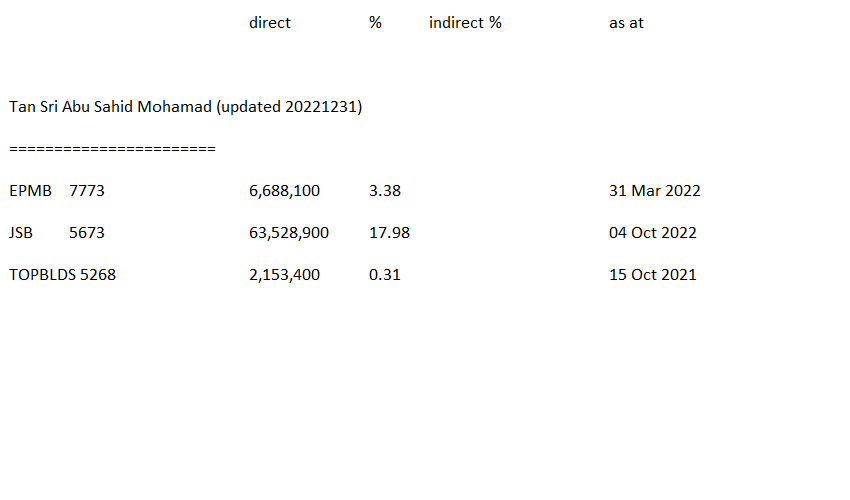

.jpg/330px-Mahathir_Mohamad_13112018_(cropped).jpg)







.jpg)

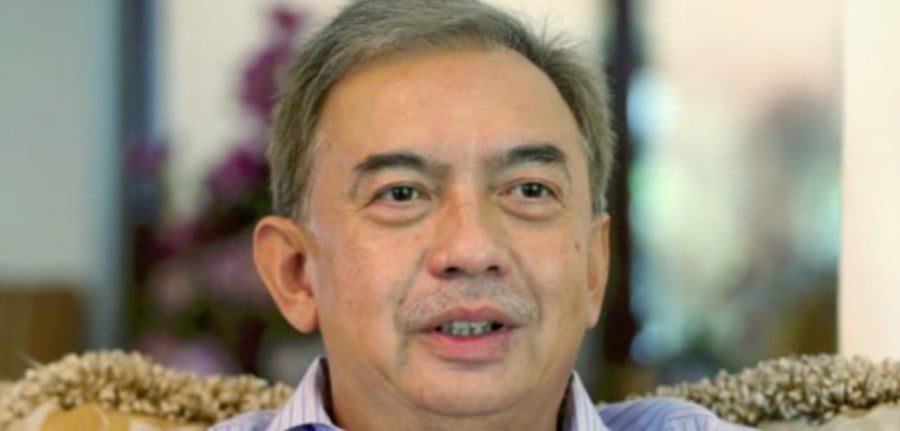


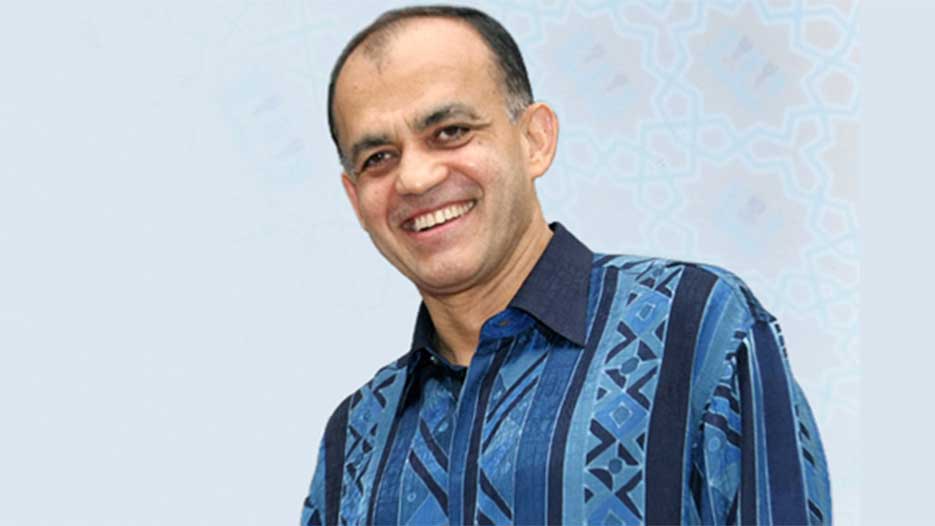

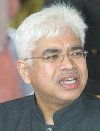

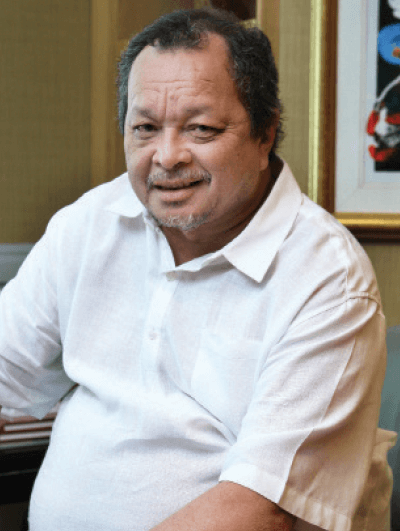

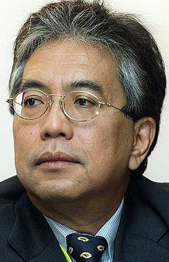
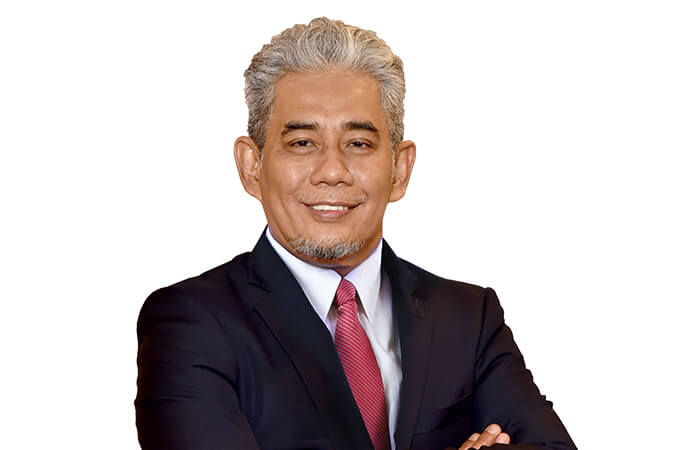


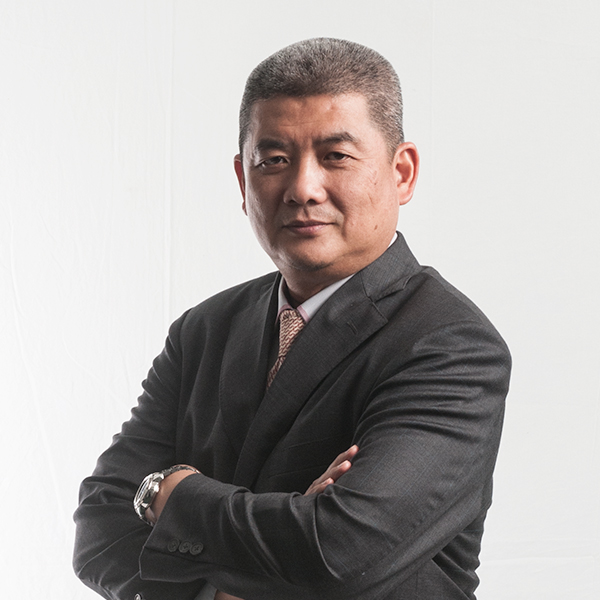
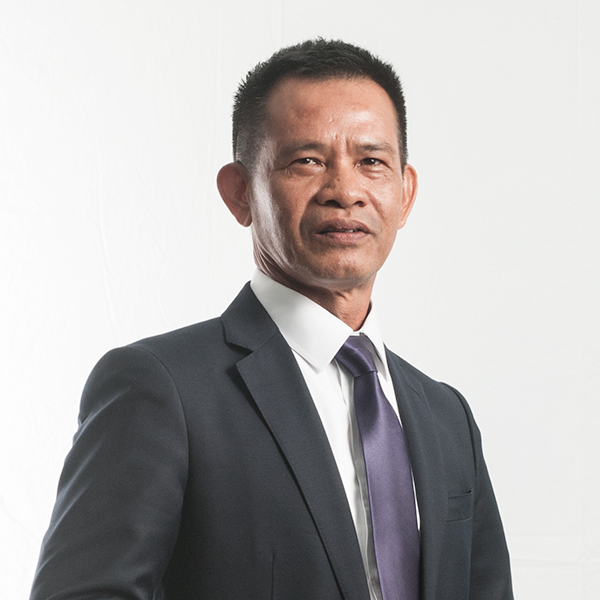


































没有评论:
发表评论